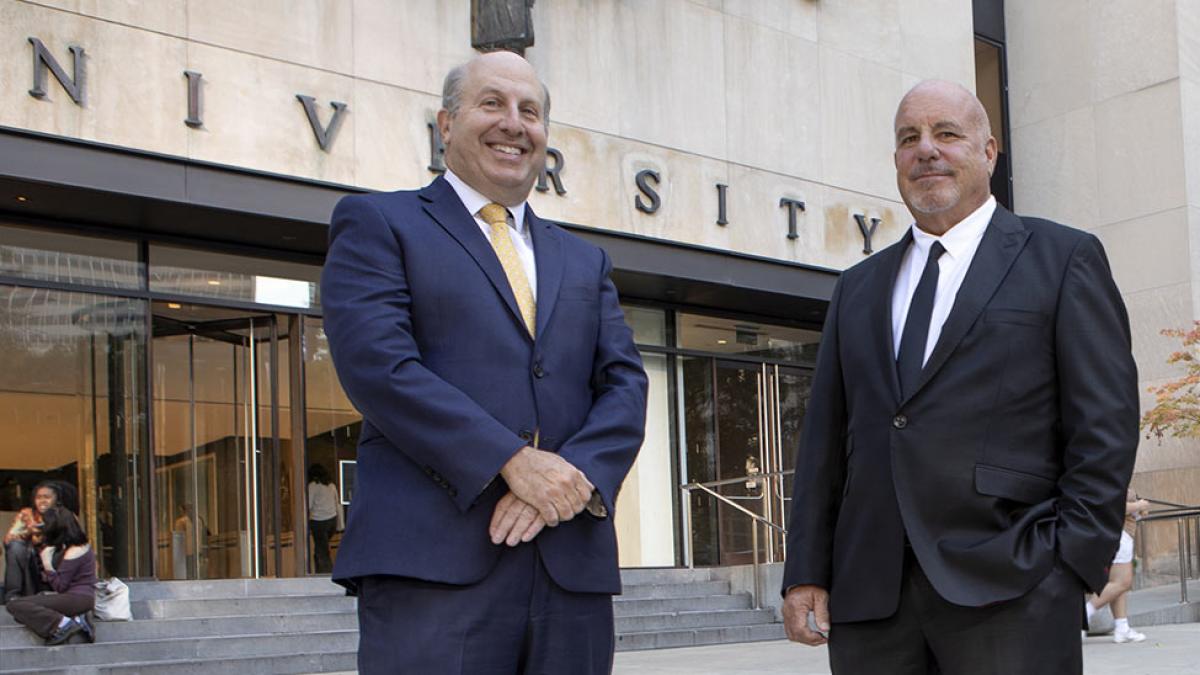Broadway stages. Global policy wins. A first-of-its-kind AI degree. Record-breaking generosity. And students leading real change—from healthcare and environmental advocacy to protecting New York’s wildlife. The Winter 2026 edition of "10 Things to Inspire You" captures just a snapshot of the momentum driving the Pace Community forward.
Spring 2026: Pop-Up Student Solutions Centers
Questions about registration, financial aid, or student accounts? The Pop-Up Student Solutions Centers are your go-to resource as we start the Spring 2026 semester. No appointments, no stress—just the answers you need to keep moving forward.


Starting a new semester is exciting—but it can also come with a lot of logistics. From figuring out your financial aid package to making last-minute schedule changes, Pace’s Pop-Up Student Solutions Centers are here to help you navigate it all, so you can focus on what really matters: going for it this semester.
Whether you’re on the New York City Campus or the Pleasantville Campus, you’ve got dedicated support from teams across Financial Aid, Student Accounts, Admissions, and the Registrar’s Office. No appointments needed—just show up during operating hours and get the answers you need.
Pop-Up Student Solutions Center Schedule
Dates:
January 26–January 30, 2026
Hours:
- Monday, Wednesday, and Friday: 10:30 a.m.–4:00 p.m.
- Tuesday and Thursday: 12:00–5:30 p.m.
Locations:
- New York City Campus: 161 William Street, 8th Floor
- Pleasantville Campus: Kessel Student Center, Dean’s Suite area
From adjusting your Spring 2026 class schedule to understanding your tuition bill, the Pop-Up Student Solutions Centers are here to simplify your start to the semester. Because when things run smoothly, you can spend less time in line—and more time chasing what’s next.
More from Pace
With Fall 2026 approaching, One Pace Plaza East is quickly moving from construction site to campus centerpiece. The transformational renovation is well underway, bringing new life to one of Pace University’s most iconic buildings.
Named one of the Top 50 Undergraduate Business Professors in the nation, Jessica Magaldi, JD, connects law to what students care about by building courses (and relationships) rooted in meaning, relevance, and real-life learning.
The First Chapter of a Movement of Meaning
Fifty students. Six sessions. One life-changing experience. As the Center for Leadership and Emotional Intelligence wraps its inaugural program, leaders from across Pace reflect on its impact and share their vision for the future.
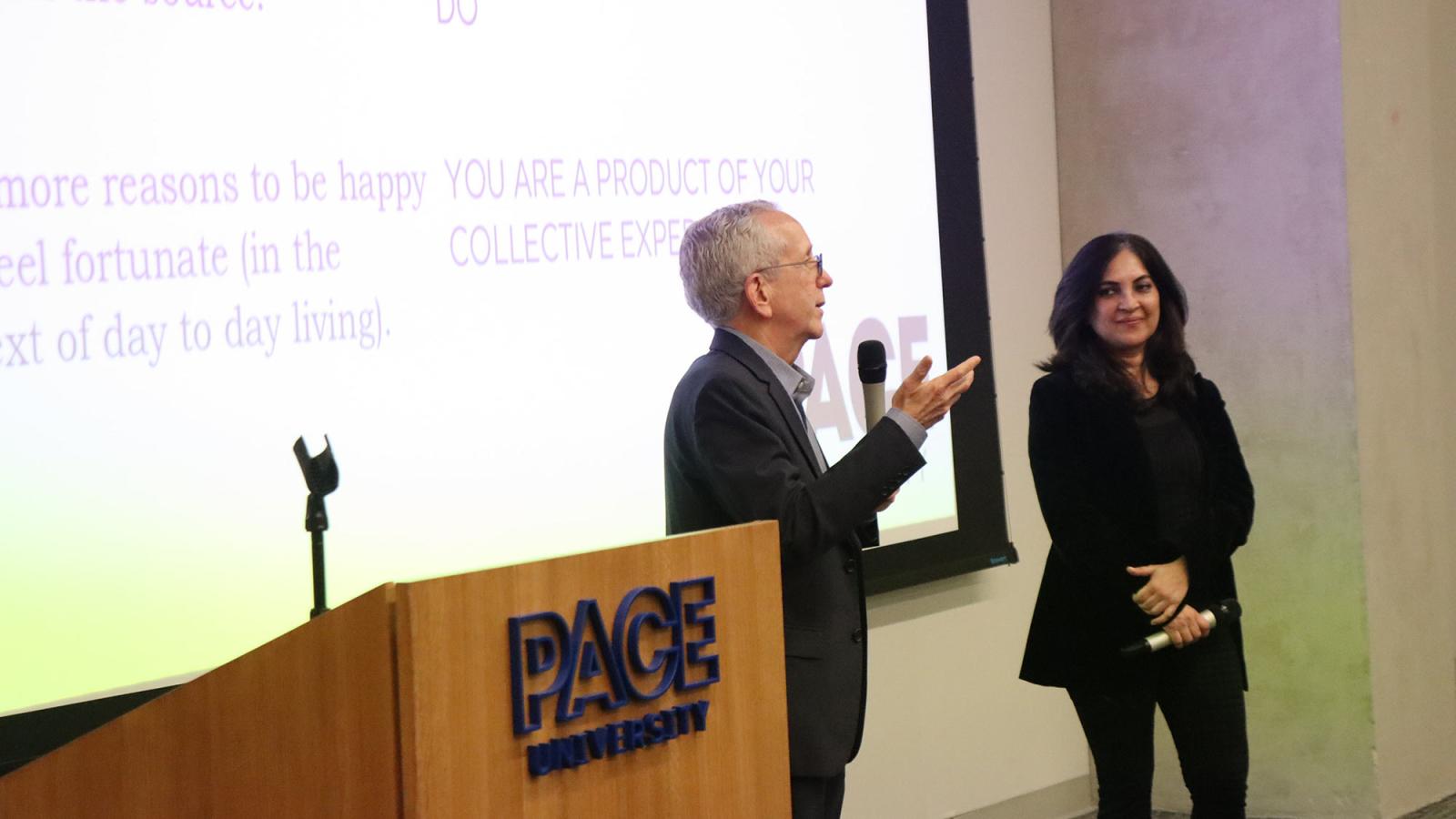
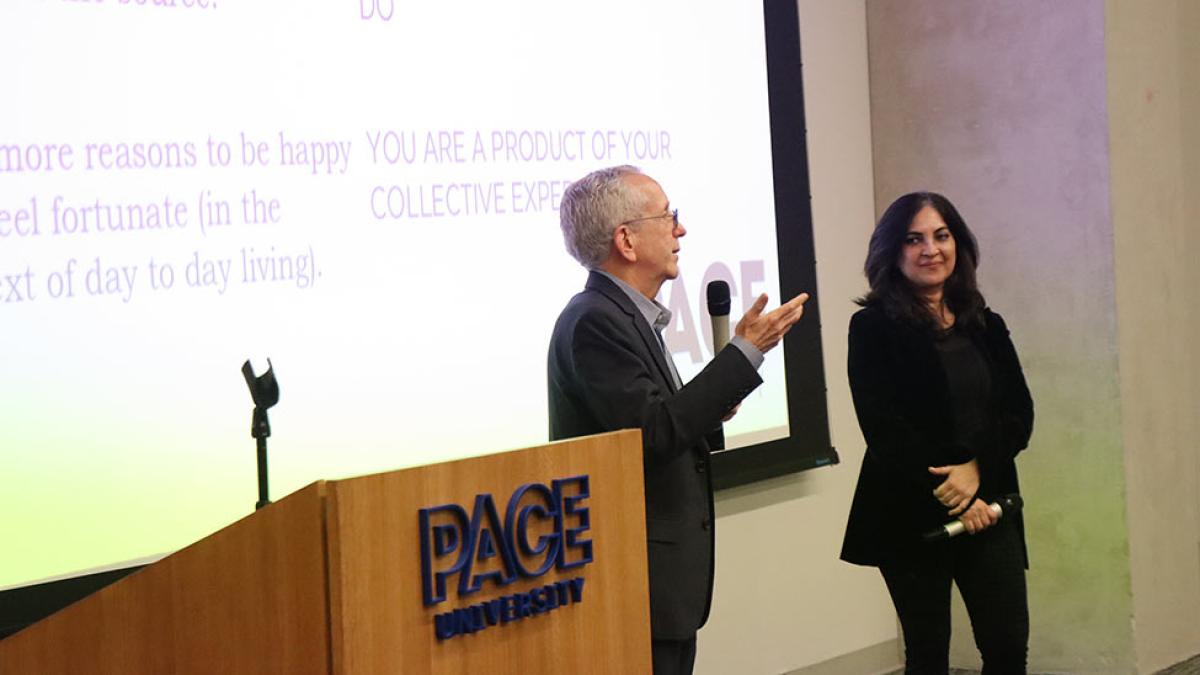
What does it mean to lead a life of purpose?
The Center for Leadership and Emotional Intelligence, housed in Pace University’s Lubin School of Business, just completed its inaugural program designed to help students answer that question.
The six-session, non-credit initiative merges the science of happiness with leadership education. Created in partnership with Harvard professor and Kennedy School professor Arthur Brooks, who also runs the Leadership and Happiness Laboratory, the program teaches students to lead with purpose, resilience, and self-awareness.
Ipshita Ray, PhD, the academic lead for the initiative, has spoken passionately about her motivations to bring this initiative to Pace. She adapted tools and exercises developed by Brooks and combined them with her own insights to create a happiness-forward curriculum.
"Our students are learning how to lead by example." —Braun
“This program provides a 360 view of leadership based on a foundation of self-discovery, interrogation, analysis, hard work, and hope for the future,” says Ipshita. “It provides students with the right tools to create their own framework or a plan to build the lives they envision based on a value system and a foundation of positive emotional health.”
It's more important than ever to help students connect. “The data about Gen Z, Gen Alpha, and millennials suffering from depression, anxiety, and loneliness is very clear,” says Ray. That urgency showed in the program’s launch: though capped at 50 students, more than 100 signed up—underscoring a real need for experiences that foster meaning and growth.
The program has received significant support from across Pace University. Ray invited Neil Braun, Lubin dean emeritus and former NBCUniversal president, to co-teach the curriculum with her. “Our students are learning how to lead by example,” Braun says. “With compassion, clarity, and the ability to turn challenge into opportunity.” Braun believes so strongly in this initiative that he’s also pledged funding support.
"This program is more than curriculum—it’s a head start." —Krislov
The Center has galvanized momentum across the Pace Community. Pace alumni Thomas Quinlan III ’85, president and CEO of R.R. Donnelley, came to the New York City Campus to address students at the final session, which was attended by over 180 students. “You can’t lead alone—and you can’t lead without emotional intelligence,” he told them. “What makes teams work is not just skill—it’s trust, empathy, and the way you show up.”
Dean of the Lubin School of Business Ajay Khorana echoed the importance of resilience in the face of change, especially as technology and policy continue to reshape the future of work. “Even as the workplace transforms, emotional intelligence endures as a defining strength,” Khorana said. “Your capacity to lead, adapt, and build meaningful connections will set you apart.”
President Marvin Krislov affirmed the program’s long-term value to students and the University alike. “This program is more than curriculum—it’s a head start,” Krislov said. “Emotional intelligence is the skill that sets great leaders apart, and what students gained here will give them an edge when it matters most.”
"Even as the workplace transforms, emotional intelligence endures as a defining strength"
The Center for Leadership and Emotional Intelligence’s inaugural cohort has finished, but the Center is just getting started. The New York City spring program will begin on January 26. And, according to Ray, “Students are already clamoring to register!” Efforts to expand the program to the Pleasantville Campus will begin in April with a preview session.
Ray anticipates that this program will continue to grow, hoping to bring it not just to both campuses but also to high schools and CUNY schools. “I want to make this a major movement,” says Ray. “My hope is to expand the program University-wide, which would allow Harvard to list us on their website, invite us to symposia, and co-lead research.”
"This program is more than curriculum—it’s a head start." —Krislov
The clearest reflection of the program’s impact? The words of the students who lived it.
“This program changed how I think about leadership,” said Muskan Kumari ’26, a Business Analytics graduate student from Karachi, Pakistan. “It gave me real tools to manage stress, lead with empathy, and grow with purpose. I walked away more confident—not just in my career path, but in who I want to be.”
More from Pace Magazine
Named one of the Top 50 Undergraduate Business Professors in the nation, Jessica Magaldi, JD, connects law to what students care about by building courses (and relationships) rooted in meaning, relevance, and real-life learning.
Broadway stages. Global policy wins. A first-of-its-kind AI degree. Record-breaking generosity. And students leading real change—from healthcare and environmental advocacy to protecting New York’s wildlife. The Winter 2026 edition of "10 Things to Inspire You" captures just a snapshot of the momentum driving the Pace Community forward.
When Joseph Benfield ’91, Kathy-Ann Edwards ’93, and Franklyn Smith ’89 arrived at Pace from across the Caribbean, they found more than an education—they found a community that believed in them. Today, they are channeling that shared experience into meaningful impact, establishing a scholarship that honors their journey and invests in the future of Caribbean and Black business students at Pace.
Jessica Magaldi: Nationally Ranked. Personally Invested.
Named one of the Top 50 Undergraduate Business Professors in the nation, Jessica Magaldi, JD, connects law to what students care about by building courses (and relationships) rooted in meaning, relevance, and real-life learning.
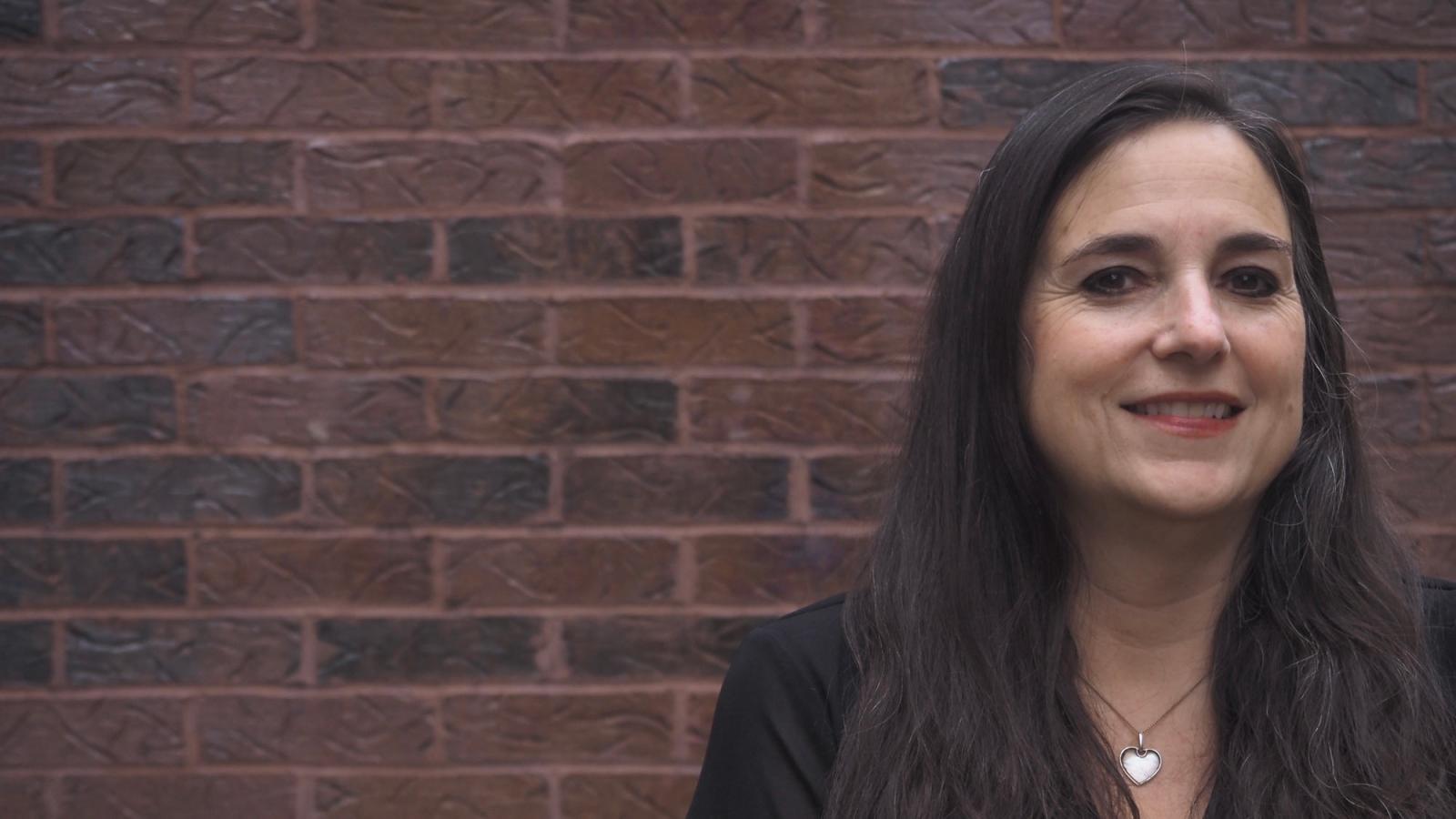
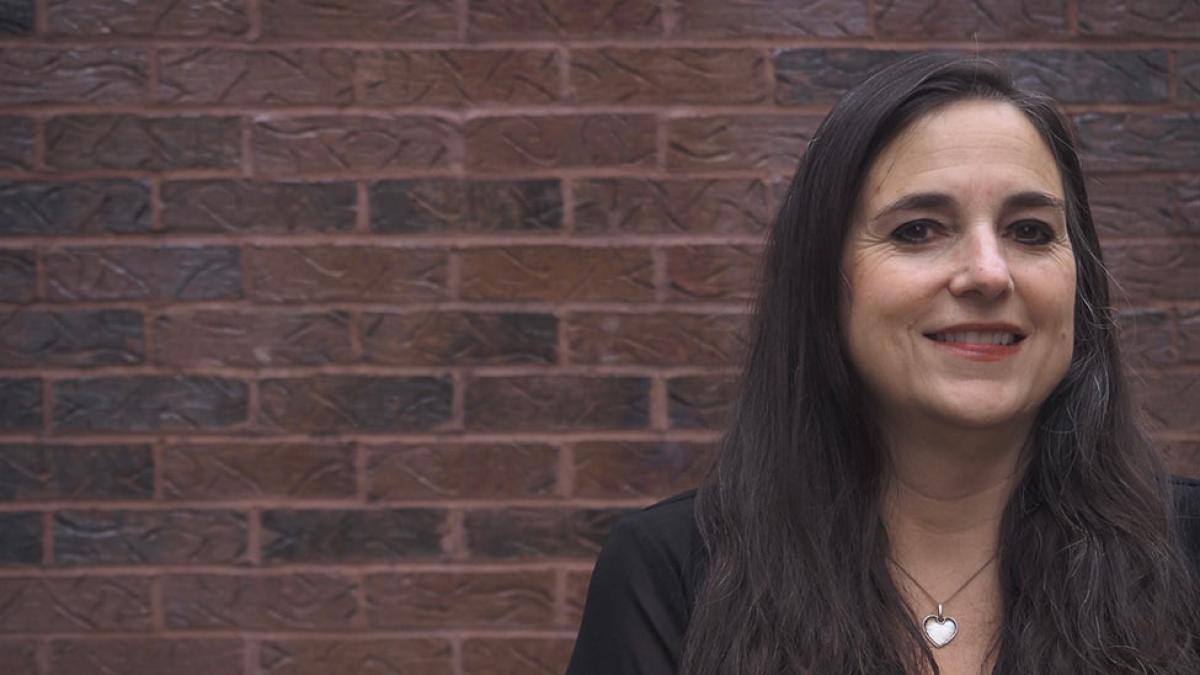
Every year, Poets & Quants for Undergrads releases its list of The 50 Best Undergraduate Business School Professors, a national roundup of standout educators shaping the future of business education. One of the names in the class of 2025 is a familiar one: Jessica Magaldi, JD, Ivan Fox Professor and Scholar of Business Law at Pace University’s Lubin School of Business.
The honor came after 19 colleagues, administrators, and alumni nominated Magaldi for her academic rigor, compassionate mentorship, and commitment to innovation. “She exemplifies what this award seeks to honor: a professor whose influence extends far beyond course content,” says alumna Samantha Dorsi ’23. “At the same time, she maintains rigorous academic standards and brings genuine passion into the classroom.”
Another one of her nominators, alumna Dhruvi Gandhi ’18, puts her reasons for nominating her even more succinctly. “Professor Magaldi is the standard by which I measure what an exceptional professor should be.”
Her former students’ testimonials make it clear: while academic excellence may be the foundation for such an honor, it’s Magaldi’s deliberate, student-centered approach that truly sets her apart.
Teaching That Evolves
In the Top 50 list, Magaldi’s name is the first under the list of Classroom Innovators. For Magaldi, classroom innovation begins by connecting with what students care about.
Twenty years ago, Magaldi used a copyright case in her intellectual property class involving George Harrison’s “My Sweet Lord” and The Chiffons’ 1960s hit “He’s So Fine”—a controversy with lasting effects on media law. But over time, she found the example no longer resonated with students. Many didn’t know George Harrison or even what a ’60s girl group was.
“This generation of teachers kind of lets ourselves off the hook,” Magaldi muses. “We say our culture is more important than the culture of students.” But Magaldi wanted her students to relate to the material so they could relate to the class. “So, I thought about it,” she says. “And I asked them: who is your favorite musical artist?”
"Professor Magaldi is the standard by which I measure what an exceptional professor should be."—Gandhi
The answer to this question led to one of her most popular classes: Music Industry and the Law (Taylor’s Version). The class uses Taylor Swift’s career to teach intellectual property and music industry law, linking the curriculum to a notable figure that students have an interest in.
“As I heard students talk about Taylor Swift in other contexts, I saw how powerful that connection was. I wanted to harness that interest that students had in Swift to direct it to the business and legal issues that she was involved in,” Magaldi explains. “Rather than insisting that my view of culture is the one that controls, could I take things that are culturally important to my students and use them to teach the things that either I or the curriculum thinks are important?”
Alumna Natalie Filkins ’25 took Music Industry and the Law (Taylor’s Version) and cites Magaldi’s ability to connect curriculum to student interests as one of the reasons she nominated her. Filkins explains, “Her class bridged a gap between the business and humanities departments, and she developed it in response to student interest,” says Filkins. “She has been able to bridge the gap between current events and complicated legal topics.”
Magaldi brings the curriculum into her students’ world, showing that great teaching starts with meeting students where they are.
Keeping It Real(-World)
Magaldi’s passion for keeping her curriculum relevant and engaging isn’t just for the sake of her students, but also for her own love of learning. “I don’t want to stand in front of the room and teach the same thing I’ve been teaching for 20 years and then do it for another 20,” Magaldi explains. “I want to be someone who’s been teaching for X number of years, but not Groundhog Day-ing it.”
Her wildly popular Taylor Swift-focused business law class isn’t the only way Magaldi has worked to adapt curriculum to be more interesting and relevant to her students. When Pace began piloting First-Year Seminars, Magaldi jumped in with a new course that again connected her expertise to student interests: Pop Culture and the Law.
“She did not just teach me law—she helped me discover my passion, develop resilience, and build the foundation for a career I truly love.”—Dorsi
As the course went on, Magaldi found that her curriculum inspired more than academic discussion. “I used My Cousin Vinny and Legally Blonde—both fish-out-of-water stories,” says Magaldi. “They’re both about people dropped into a new scenario trying to figure out the rules—how to dress, how to talk—and figure out how much of themselves to keep.” The class became a vehicle to relate to these first-year students who were experiencing their own fish-out-of-water experiences and to help them decode a university’s unwritten rules and norms, something particularly important with Pace’s population of first-generation Americans and first-generation college students.
Magaldi’s course delivered on the promise of the First-Year Seminars—not only by engaging new students and easing their academic transition, but by meeting students where they are and setting them up for success.
Compassion in the Classroom
That instinct to meet students where they are extends beyond what Magaldi teaches into how she teaches.
“I have a lot of compassion for the learning process,” she explains. “There are some things that come easy to me and some that don’t. I don’t assume every student has to come to my class with the same level of ability, capability, interest in the subject matter, or even the privilege of being able to concentrate.”
Recently, she’s worked with students navigating everything from familial self-deportation to short-term disability, financial stress, and personal trauma, all while still trying to achieve their academic goals. “There are so many things students are dealing with. We have to appreciate our students as whole people in the context of their larger lives.”
“She has been able to bridge the gap between current events and complicated legal topics.” —Filkins
Dorsi can attest to the power of having a professor care beyond the gradebook. “Perhaps most importantly, Professor Magaldi supported me as a whole person,” Dorsi says. “During times when personal challenges made me doubt my ability to succeed, she believed in me unwaveringly and pushed me to persevere. That mentorship made all the difference.”
This is reflected in Magaldi’s driving mission. “We have to find some meaning,” she says. “My job can be very difficult. The best parts are being able to make real connections with people.”
Mentorship and Meaning
There’s no stronger testament to her commitment to connection than the alumni who nominated her as one of the Top 50 Undergraduate Business Professors.
“It’s incredibly gratifying to have the kind of relationships with my students that mature into these other relationships where we are all looking out for one another as people, where we are supportive of one another,” she says.
Filkins explains how Magaldi’s mentorship didn’t end with graduation. “I worked as a research assistant for Professor Magaldi for three years,” she says, “She was, and continues to be, a huge source of inspiration for me in pursuing a legal career.”
“Some professors teach courses. Professor Magaldi changes the direction of lives.”—Gandhi
For Gandhi, Magaldi’s guidance has remained a constant—shaping decisions, career moves, and personal growth. “Professor Magaldi has shaped the foundation of my personal and professional life. As an entrepreneur and business owner, I still seek her guidance when making critical legal and strategic decisions,” she explains. “Her influence has followed me across countries, institutions, and years, and it continues to guide my decisions today.”
Just as deeply as these alumni feel Magaldi’s impact, Magaldi finds inspiration in her former students as well. In 2019, Magaldi received the Homer and Charles Pace Faculty Award, only two years after becoming full-time faculty. She recalls that when asked who she wanted to bring, she decided not to invite her elementary-aged daughters (who might not enjoy a very grown-up gala anyway) and instead invited the alumni who nominated her. “Why wouldn’t I want to surround myself with these people? They’re amazing.”
That reciprocity of respect and connection is key to how Magaldi approaches not just teaching, but her life. “I'm trying to nurture that because it’s the thing that makes my job better. When you do that, it comes back to you.”
What’s Next
What comes next for one of the nation’s top professors? For Magaldi, it’s all about staying on top of what is new and interesting.
One of her recent projects includes building an AI tutor for two of her classes, inspired by AI-powered tutors Gabriel Terrizzi, Pace’s director of web, mobile, and AI services, used in his AI in the Workplace class. “I'm conscious of the potential negatives of AI, but I don’t want to be left behind. I want to understand how my students are using it and I want to get as much good out of it as I can.”
"The best parts [of my job] are being able to make real connections with people.”—Magaldi
Building on her experiences as a professor and in the First-Year Seminar, Magaldi is also co-authoring a book focused on helping students navigate their own first-year experience and feel connected at school. “I've been in a lot of places where it feels like everyone knows what's going on except you,” she explains. “I'm trying to demystify that for students entering college.”
As Magaldi looks ahead, exploring new tools, new questions, and new ways to connect, her impact is already written into the stories of her students’ lives.
“I know without question that I would not be where I am today without Magaldi’s guidance,” says Dorsi. “She did not just teach me law—she helped me discover my passion, develop resilience, and build the foundation for a career I truly love.”
For Gandhi and so many others, Magaldi’s impact is rooted in her belief in her students and how she shows up for them. “She sees potential in students long before they see it in themselves and then stays invested in that potential,” says Gandhi. “Some professors teach courses. Professor Magaldi changes the direction of lives.”
More from Pace Magazine
Pace’s Federal Reserve Challenge Team has secured a record-breaking sixth national championship title. Team Captain Suraj Sharma ’26 opens up about the grind, the growth, and the meaning behind the historic win.
Higher education is being reshaped by rapid change and leadership matters more than ever. This fall, we welcomed Ajay Khorana, PhD, as dean of the Lubin School of Business and Brian Goldstein, PhD, as dean of the College of Health Professions, two accomplished leaders whose expertise bridges academic rigor, industry insight, and student outcomes.
Fifty students. Six sessions. One life-changing experience. As the Center for Leadership and Emotional Intelligence wraps its inaugural program, leaders from across Pace reflect on its impact and share their vision for the future.
120 Years of Pace: The Celebration Begins
It’s 2026, and Pace University is turning 120. We’re kicking off a yearlong celebration of the people, places, and moments that have shaped our community since 1906. This is just the beginning—stay tuned for stories, events, and ways to get involved all year long.
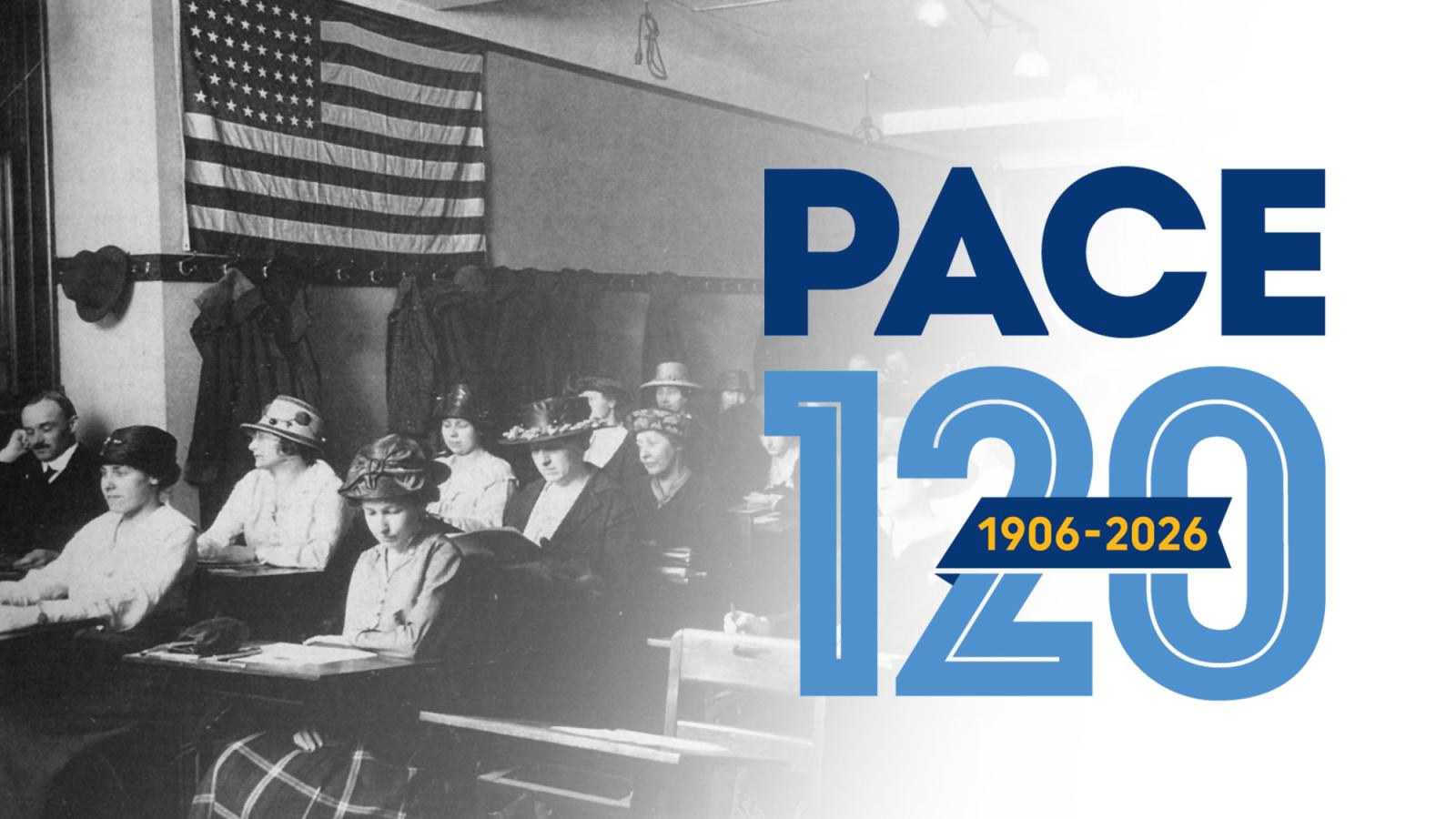
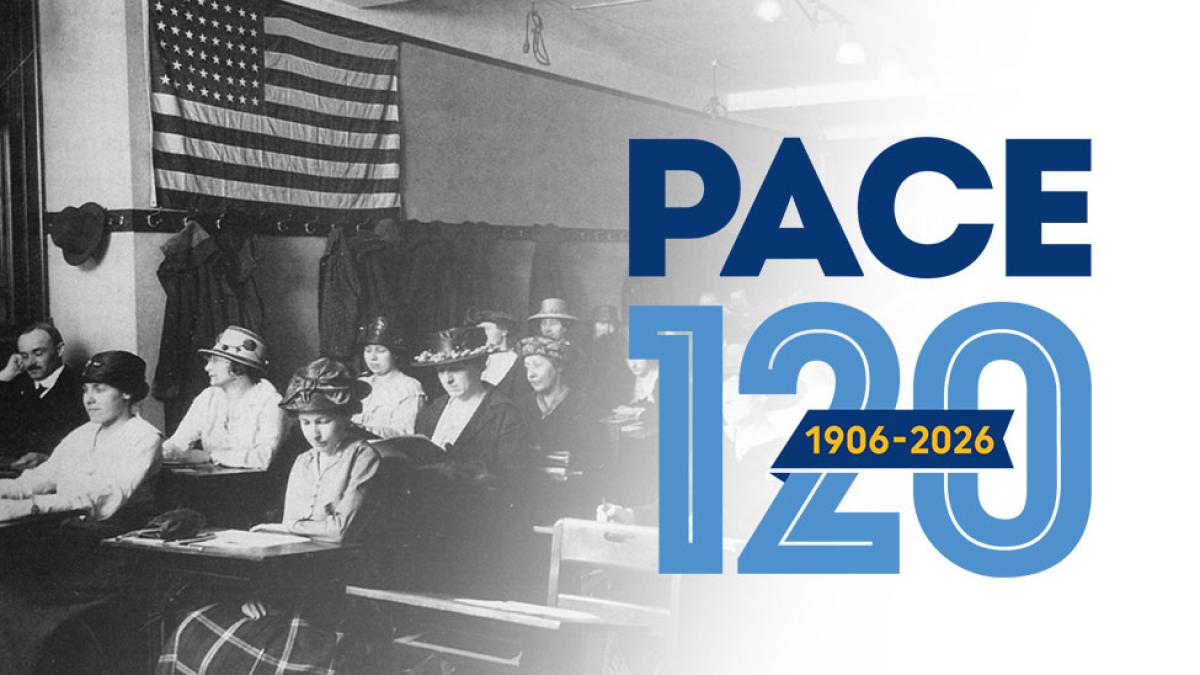
In 2026, Pace University celebrates 120 years of purpose-driven education, bold ideas, and lives transformed. While this issue of Pace Magazine offers only a glimpse into our enduring legacy, we’re excited to share that a special Deep Dive digital publication—devoted entirely to the history, impact, and spirit of Pace—will launch later this spring.
In the meantime, follow @paceuniversity on social media as we begin rolling out gems from the University archives. From photos and documents to moments that shaped our mission, you’ll discover the stories that continue to define who we are and where we’re headed.
And as spring arrives, so do signature events that bring our community together. A special 1906 Giving Day will highlight the power of philanthropy. Campus celebrations will honor our founders’ birthdays. And in New York, keep your eyes on the skyline as we attempt to illuminate landmark buildings in blue and gold.
We’re also asking you to be part of the celebration. Use the link below to share your favorite memories of Pace or let us know what you’d like to see featured as we explore 120 years of history over the coming months.
More from Pace Magazine
Fifty students. Six sessions. One life-changing experience. As the Center for Leadership and Emotional Intelligence wraps its inaugural program, leaders from across Pace reflect on its impact and share their vision for the future.
Higher education is being reshaped by rapid change and leadership matters more than ever. This fall, we welcomed Ajay Khorana, PhD, as dean of the Lubin School of Business and Brian Goldstein, PhD, as dean of the College of Health Professions, two accomplished leaders whose expertise bridges academic rigor, industry insight, and student outcomes.
For 120 years, Pace University has opened doors, challenged expectations, and launched lives. As we mark this milestone, we look ahead—celebrating the people, programs, and purpose that continue to move the Pace Community forward.
New Deans Elevate Pace University’s Standing in Business and Health
Higher education is being reshaped by rapid change and leadership matters more than ever. This fall, we welcomed Ajay Khorana, PhD, as dean of the Lubin School of Business and Brian Goldstein, PhD, as dean of the College of Health Professions, two accomplished leaders whose expertise bridges academic rigor, industry insight, and student outcomes.
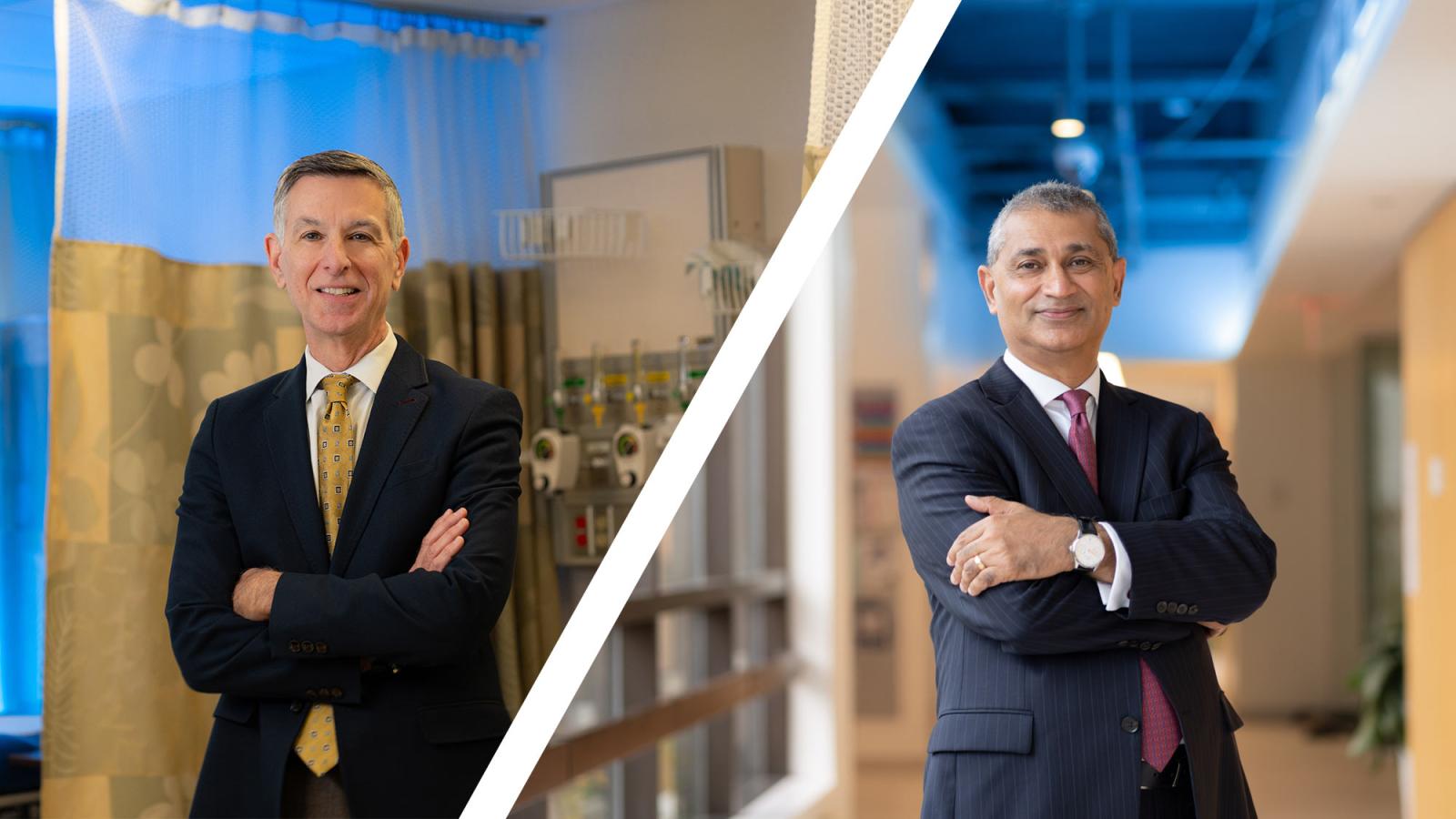
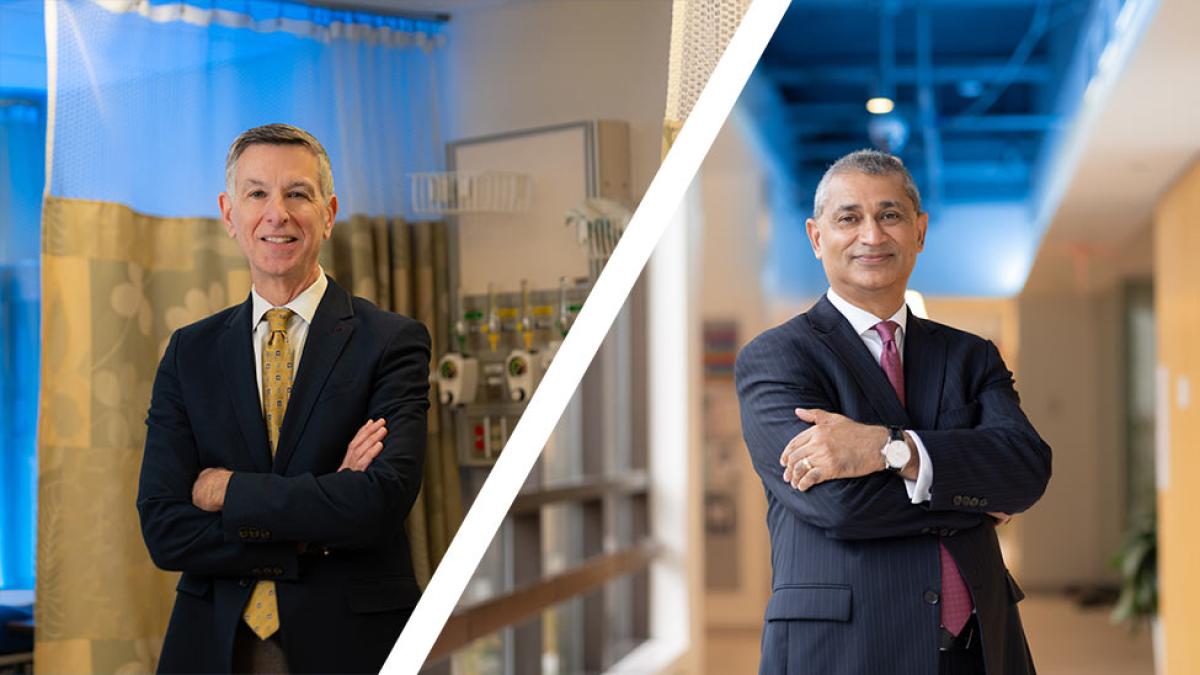
Higher education is in a moment of profound transformation. Universities must prepare students not only for today’s workforce, but for industries evolving at unprecedented speed. Pace University has long embraced that challenge—connecting academics with professional preparation, building programs that anticipate the future of work, and investing in leaders who push higher education forward.
That vision advances with the appointments of Ajay Khorana, PhD, as dean of the Lubin School of Business, and Brian Goldstein, PhD, as dean of the College of Health Professions. Both leaders bring deep expertise and fresh perspectives, strengthening Pace’s ability to translate academic excellence into real-world impact.
“We are delighted to welcome two deans who embody excellence in every sense—distinguished scholarship, visionary leadership, and the ability to connect academic rigor with professional outcomes,” said University President Marvin Krislov. “The appointments of Dr. Khorana and Dr. Goldstein reflect Pace’s continued investment in quality and achievement at the highest level.”
Connecting Classrooms to Careers
At Pace, academics and industry are inseparable. Business students learn steps from Wall Street, gaining not only theoretical knowledge but direct access to internships, experiential learning, and partnerships with some of the world’s most influential firms. The recent Pace of Fintech conference—hosted in collaboration with Goldman Sachs and Sixth Street—is one example of how Lubin leverages its location and network to create opportunity.
“Pace is uniquely positioned—steps from Wall Street, fueled by expert faculty, and deeply connected to the business world."

Dean Khorana embodies that approach. Prior to joining Pace, he served as global treasurer for Citigroup’s U.S. Personal Banking and Global Wealth businesses, overseeing strategic financial planning, risk management, and capital allocation for a $400 billion balance sheet. Over nearly two decades at Citi, he also led the Financial Strategy Group, advising Fortune 500 companies on mergers and acquisitions, capital structure, and corporate governance. Earlier in his career, as a faculty member at Georgia Tech and the University of Virginia, he earned recognition for both his research and teaching.
“Pace is uniquely positioned—steps from Wall Street, fueled by expert faculty, and deeply connected to the business world,” said Dean Khorana. “Having led strategic finance at a global scale, I understand what today’s employers demand and how to shape an education that delivers. There’s no better place to connect business education with the center of the financial world.”
Lubin holds an elite distinction: dual AACSB accreditation in both business and accounting, earned by fewer than 2 percent of business schools worldwide. Its programs consistently rank among the nation’s best—from top-ten recognition in LinkedIn’s Top MBAs for job placement and gender diversity to being the first U.S. business school granted ACCA certification exemptions. Lubin’s Doctor of Professional Studies program also ranks among the world’s top executive doctoral programs, including first in the United States for its focus on corporate social responsibility.
With Khorana’s blend of industry insight and academic leadership, Lubin is poised to extend its record of excellence and prepare students for the next era of global business.
Leading in Health Professions
The College of Health Professions (CHP) is another cornerstone of Pace’s academic strategy, nationally recognized for educating healthcare leaders in high-demand fields. Its programs consistently rank among the best in the nation, including placement in the top 3 percent of nursing bachelor’s degree programs by College Factual. U.S. News & World Report ranks nurse practitioner as the #1 healthcare job in America, with the Bureau of Labor Statistics projecting 52 percent job growth between 2020 and 2030—fields where CHP is already a leader.
“At Pace, we’re preparing students to lead, innovate, and serve. I’m excited to build on this strong foundation and help shape the future of care.”
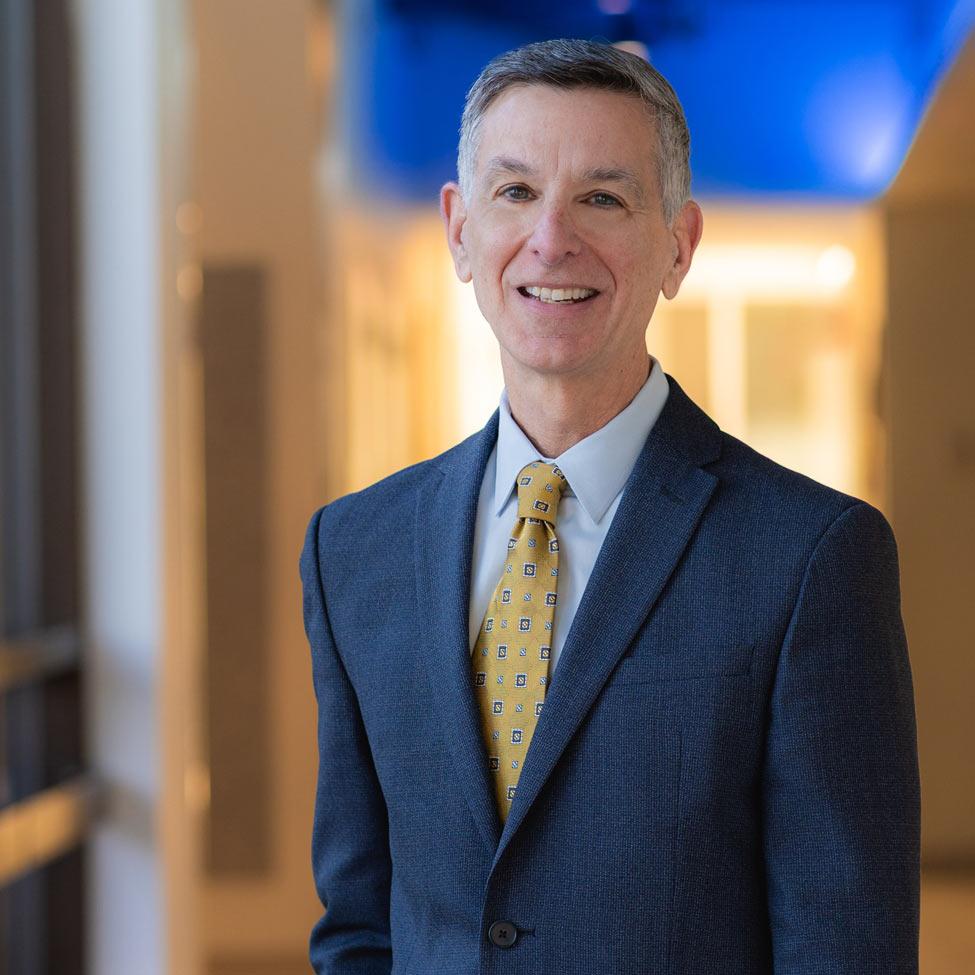
Dean Goldstein joins CHP with a proven record of innovation. As president and chief academic officer at the University of St. Augustine for Health Sciences, he led academic and operational strategy across five campuses serving more than 4,000 graduate students. His leadership drove enrollment growth, expanded hybrid and online programs, strengthened clinical partnerships, and improved both student satisfaction and faculty retention. Earlier roles at La Salle University and Temple University further deepened his expertise in academic leadership, curriculum development, and health sciences education.
“Health care is evolving rapidly—and so is health education,” said Dean Goldstein. “At Pace, we’re preparing students to lead, innovate, and serve. I’m excited to build on this strong foundation and help shape the future of care.”
CHP graduates step directly into high-impact careers. Under Goldstein’s leadership, the college is positioned to expand its national reach, deepen clinical partnerships, and elevate the student experience—while helping define the future of health sciences education.
A Bold Academic Future
Together, the appointments of Khorana and Goldstein represent more than leadership transitions. They signal momentum—an institution committed to anticipating industry needs, investing in innovation, and cultivating leaders who turn academic strength into measurable impact.
Since 1906, Pace University has transformed lives through education that connects learning with opportunity. Today, with campuses in New York City and Westchester serving more than 13,000 students across seven schools and colleges, Pace continues to advance that mission. The addition of these two visionary deans marks the next chapter—where academic excellence, professional preparation, and bold leadership converge to shape the future of higher education.
More from Pace Magazine
With 1.5 million TED Talk views, seven books, and a record of transformative academic leadership, Pace University’s newest provost is bringing bold ideas—and big energy—to campus.
It’s 2026, and Pace University is turning 120. We’re kicking off a yearlong celebration of the people, places, and moments that have shaped our community since 1906. This is just the beginning—stay tuned for stories, events, and ways to get involved all year long.
Every Pace degree carries a promise. Middle States accreditation helps ensure that promise endures. In this Q+A, Pace leader Nancy DeRiggi explains how the University is assessing its progress, planning ahead, and building momentum that benefits students and alumni alike.
From the Caribbean to Campus
When Joseph Benfield ’91, Kathy-Ann Edwards ’93, and Franklyn Smith ’89 arrived at Pace from across the Caribbean, they found more than an education—they found a community that believed in them. Today, they are channeling that shared experience into meaningful impact, establishing a scholarship that honors their journey and invests in the future of Caribbean and Black business students at Pace.
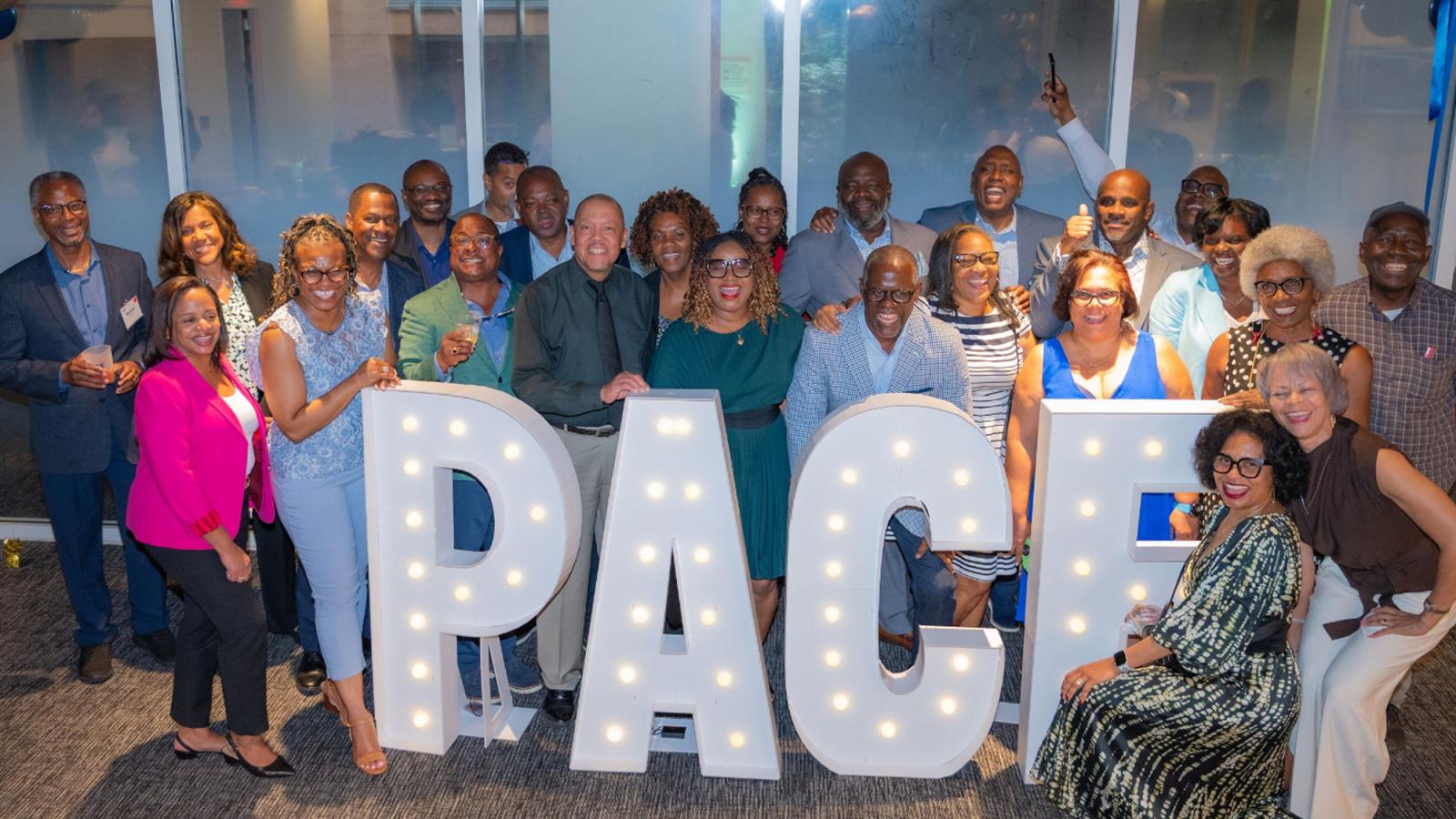
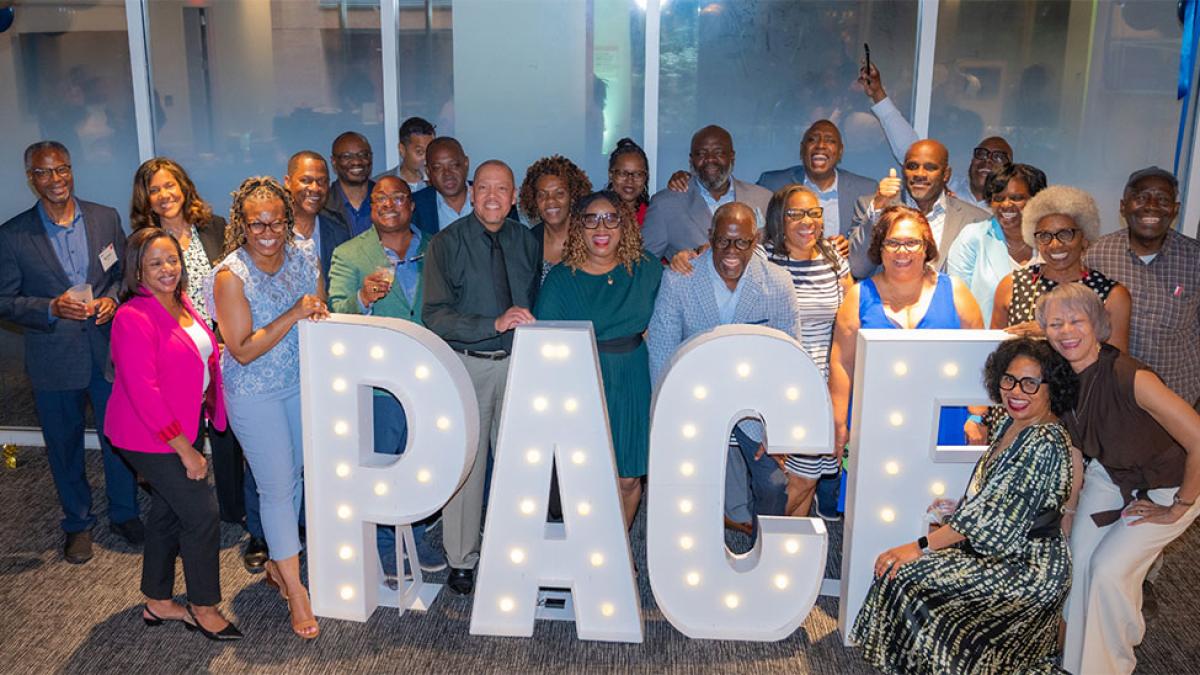
Pace has long been a hub for Caribbean students pursuing their academic and professional goals. Now, three successful alumni are using their stories to inspire a new chapter in Pace’s proud history of Caribbean student success.
Decades after first crossing paths as Pace University students, Joseph Benfield ’91, Kathy-Ann Edwards ’93, and Franklyn Smith ’89 are still among one another’s closest friends. In fact, they count themselves as part of a broad and close-knit community of Caribbean Pace alumni whose bonds of friendship have endured long past their final walks across the Pace commencement stage.
From the tropics to the towering skyscrapers of Lower Manhattan and beyond, Joseph, Kathy-Ann, Franklyn, and their network of kindred Caribbean Pace alumni have been there for one another through it all: new cultural acclimations, the rigors of university life, challenging CPA exams, first jobs, and the many professional triumphs that have defined their respective careers.
The root of their success? They say it all goes back to the community of like-minded, big-dreaming Caribbean students they found when they first arrived at Pace.
“The Caribbean Pace Community has been absolutely instrumental,” Kathy-Ann said. “We’ve made each other the people we are today. If I had to rewrite our story, I wouldn’t write it any other way.”
A Seismic Transition
While the trio share a cherished Caribbean heritage, their distinct journeys to Pace NYC speak to the vibrant diversity of experiences in their home region, the varying paths to university achievement, and the global connections that bring students from around the world to Pace’s New York City Campus.

Kathy-Ann, born and raised in Trinidad, was encouraged to attend Pace by her high school guidance counselor, who was a Pace alumna herself. Joseph, who arrived in the United States from Guyana with just $200 in his pocket, was referred to Pace by a cousin, also a Pace alumnus, who had ascended the ranks at CBS as a company controller. And Franklyn, the fourth youngest of twelve children from a small village in Antigua, worked for three years after high school to save money for college. He enrolled at Pace because that’s where he felt he could get the most bang for his hard-earned buck.
For all three, the transition was seismic: a new country, a new culture, and the new pressures that come with pursuing—and paying for—a college education. But at Pace, they found a vital support system ready to inspire and uplift them as they worked toward fulfilling their dreams.
“We all basically started from nothing,” Franklyn said. “But there were so many Caribbean students at Pace who were behind us. With our Caribbean classmates, regardless of what island we were from, we all had similar backgrounds, so it was easy to get connected. Once I got to Pace, with our Caribbean folks, I was comfortable.”
“That was our family in the United States,” Joseph added. “I worked full-time and went to school full-time, but meeting these people at Pace, getting involved with organizations like the Caribbean Student Association, that was hugely important. Whether we were from Trinidad or Antigua or Guyana, we were all from the Caribbean. It felt like home.”
Finding a Path at Pace
Energized by their community of Caribbean classmates and buoyed by support from organizations like the Caribbean Student Association and the National Association of Black Accountants (NABA), Joseph, Kathy-Ann, and Franklyn all excelled as accounting students in Pace’s Lubin School of Business. They credit instructors like Emeritus Professor of Accounting Rudy Jacob (a fellow Guyanese, Joseph was quick to note) and advisors like Professor John Aheto with identifying their innate potential and challenging them to reach beyond the limits of what they believed they could accomplish.

The Pace administration, too, played an essential role in their success, the trio added, especially through efforts to connect them with the resources and financial aid they needed to complete their programs.
In the end, that support and special attention from Pace mentors paid off. Each member of the trio passed their CPA exams on the first attempt, and they weren’t the only ones.
“There were probably 25 people who all passed the exam on the first try in my class,” Franklyn said. “We were well, well prepared by Pace.”
Industry Excellence
Franklyn, the first member of the trio to graduate from Pace, quickly secured a position at PwC, one of the Big Four accounting firms and among the most prestigious firms in the world. Kathy-Ann and Joseph soon followed in Franklyn’s footsteps, landing their own positions at the firm after receiving their Pace degrees.
PwC was a competitive and intense environment, the trio said, but they felt positioned by their Pace education to tackle its challenges and distinguish themselves as leaders among their peers. Franklyn recently retired as a partner at the firm after 32 years and now sits on the boards of several significant companies. Kathy-Ann just passed her 32-year mark at PwC, where she serves as a trust solutions partner and mentor to countless colleagues. And Joseph departed PwC’s New York office in 1997 after a successful six-year tenure—“I could no longer handle the cold,” he quipped—to continue his career back in the Caribbean, where he has served as a banking services CFO, the CEO of Josa Investments, and, by special request of the prime minister of Barbados, the CFO of the Cricket World Cup, the third-largest sporting event in the world.
According to each of them, their decades of professional success can be traced back in large part to the career preparation Pace provided.
“The opportunities we had at Pace put a lot of tools in our toolkit,” Kathy-Ann said. “It taught us how to survive and thrive in corporate America. Organizations on campus like NABA and the Accounting, Finance, and Management Association put us in situations where we had to build professional skill sets before we even graduated. Those experiences prepared us well for where we landed.”
Paying It Forward
Today, Joseph, Kathy-Ann, Franklyn, and their Rolodex of Caribbean Pace alumni are working hard to ensure future students receive the same career-centered opportunities that were so foundational to their own success.
In 2024, the group came together to establish the Legacy of the Island Scholarship Sponsored by Pace Caribbean Alumni, a fund designed to support Pace business students with financial need who have a demonstrated interest in Black or Caribbean culture. Establishing a scholarship was the natural culmination of their journey, from Pace students to alumni to industry leaders, they said. Added to their extensive service to Pace as volunteers and alumni advocates, the scholarship further affirms their dedication to giving back to the University that meant so much to them.
What better way to show students, particularly students from the Caribbean, like them, the extraordinary things that can be achieved when a community unites to lift one another up?
“This University did everything for me,” Franklyn said. “It’s done so much for all of us. I’m very proud of Pace, and I always want to help make someone else’s life just a little easier while supporting the University as well.”
“I can’t imagine my life without the circle of friends I met at Pace,” Joseph added. “We support one another, we look out for one another—these are the people who are the pillars of my life. These friendships have sustained me. And if you get help along the way, I think it’s important to bring somebody else along. For me, it’s about paying it forward.”
Want to learn more about how you can support the Legacy of the Island Scholarship Sponsored by Pace Caribbean Alumni? Email Carmen Santos-Robson.
More from Pace Magazine
Fifty students. Six sessions. One life-changing experience. As the Center for Leadership and Emotional Intelligence wraps its inaugural program, leaders from across Pace reflect on its impact and share their vision for the future.
Named one of the Top 50 Undergraduate Business Professors in the nation, Jessica Magaldi, JD, connects law to what students care about by building courses (and relationships) rooted in meaning, relevance, and real-life learning.
From homes around the world to a new life in Blue and Gold, international student-athletes at Pace face more than competition—they navigate culture, language, and independence.
Six Wins and Counting—Pace Takes First at Fed Challenge
Pace’s Federal Reserve Challenge Team has secured a record-breaking sixth national championship title. Team Captain Suraj Sharma ’26 opens up about the grind, the growth, and the meaning behind the historic win.
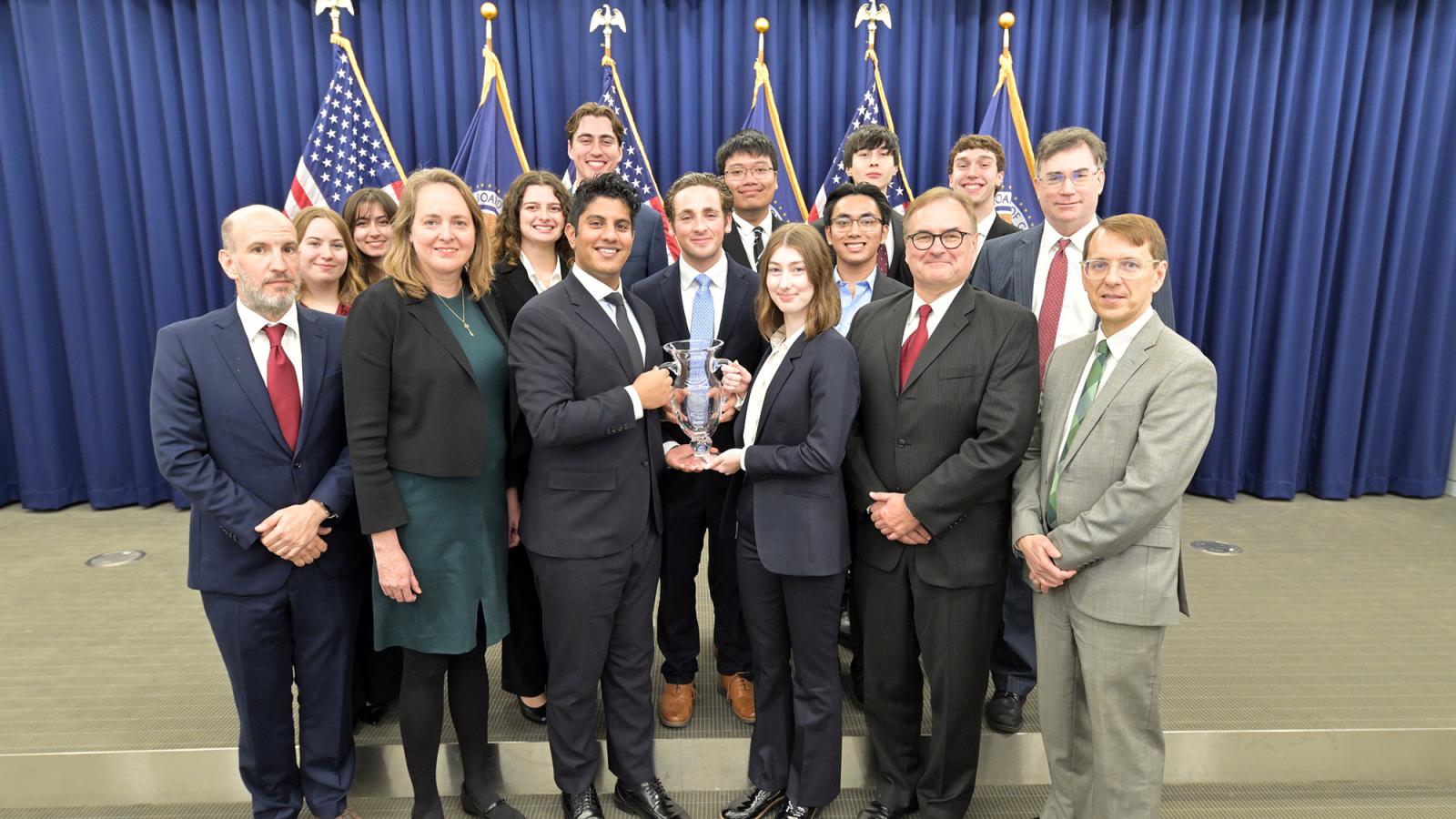
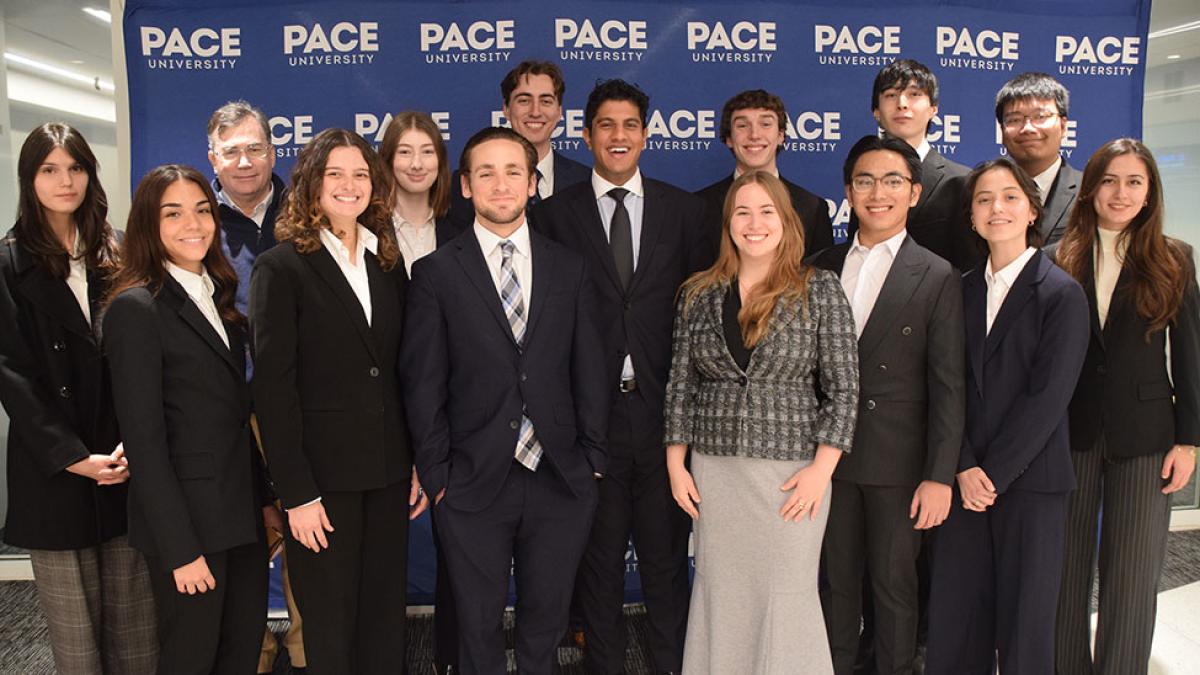
Pace University’s Federal Reserve Challenge team has a history of excellence.
This past year marked the 22nd annual College Federal Reserve Challenge national championship and Pace’s sixth win since 2014, a record-breaking achievement for the University that routinely outperforms teams from top Ivy League schools.
The win means a lot to team captain Suraj Sharma ’26, a BA in Economics and MS in Economic Analysis and Data Science student. Why? Because the Federal Reserve Challenge Team (Fed Team, as Suraj calls it) is central to his Pace story. “I chose Pace because of Fed Team,” he says. “I had offers from Fordham and Stony Brook, but Pace understood something they didn’t: the era of the 4.0 GPA guaranteeing you a job is over. Now it’s about networking, real-world experience, and alumni connections.”
But winning this year meant even more to Suraj—because it was his final chance to win before graduating.
The Federal Reserve Challenge is a high-level battle of brains, poise, and policy under pressure. Yet most people have no idea what it actually entails.
...Pace understood something they didn’t: the era of the 4.0 GPA guaranteeing you a job is over. Now it’s about networking, real-world experience, and alumni connections.
So, what is the Fed Challenge? How do teams compete? And why is it so important?
Suraj admits that ‘what is the Federal Reserve Challenge’ is the most common question people ask. The Federal Reserve is the U.S.’s central bank that makes decisions on interest rates with the goal of keeping both unemployment rates and inflation low. “Really, their goal is to facilitate a better economy for all Americans,” says Suraj.
Considering the great importance of the Federal Reserve, training a new generation of professionals to navigate these costly decisions is paramount. At this annual competition, college students make a policy recommendation to Federal Reserve officials. “Essentially, we get to say ‘here’s what we think you should do with interest rates, with your balance sheet, and here’s why’,” explains Suraj. “We go through everything—GDP, unemployment, inflation, the financial system—and justify whether we recommend a cut, a hike, or a pause.”
Getting into the actual details of their approach is tricky. After all, Pace has won more times than any other school in the country, and other teams may well be reading for tips. But for a glimpse into what a presentation looks like, check out their winning presentation and Q&A:
Though it is an economic challenge, the Federal Reserve Challenge goes beyond spreadsheets and numbers. “Honestly, the data analysis part—spreadsheets, Excel—is maybe fifteen percent of the job,” Suraj admits. “The rest is soft skills: public speaking, collaboration, compromise, negotiation.”
It's a tough challenge, and this year featured one of the most stacked rosters to date, with nearly 140 universities competing. Teams present regionally and the best arguments move onto the national stage, where only six finalists engage in a Q&A with senior research economists in the Federal Reserve Building in Washington, DC.
For Suraj, being physically there in the building brought it all home.
It was an unforgettable experience being in a room of such decision-making and power.
“I got to sit in the same chair as Chairman Powell. My colleagues sat in the same chairs as the Federal Open Market Committee that decides where interest rates are going to go,” he says. “It was an unforgettable experience being in a room of such decision-making and power.”
The final presentation is the culmination of months of hard work, long nights, and tireless debate. The team begins preparing in the summer and works through the fall semester, studying on weekends, vacations, and holidays. “There were a lot of nights when we were up until dawn.” As a commuter student, Suraj especially felt those long nights. “But that’s our work ethic, and we think it defines our success. We work for it.”
Another element of the team’s preparation is their faculty mentorship, which Suraj describes as crucial. "I’m incredibly thankful for Professor Gregory Colman, our advisor,” he says. “Also professor Mark Weinstock—he originally built the team to what it is now. These days, he plays more of a supporting role, but he’s still very involved. He attended many practices and Q&A sessions.”
Fed Team provides opportunities to everyone, we’re proof of that.
Overseeing the entire economics department, and the Fed Team, is the professor and chair of the economics department, Anna Shostya, PhD. “Her unwavering support has been everything,” Suraj explains. “From funding to academic support—making arrangements for our DC trips or extensions on assignments—she makes it all possible.”
And those connections have paid off. Because of his time on the team, Suraj interned at both JPMorgan and PIMCO and will be returning to PIMCO full-time after graduation. His experience reflects a broader pattern: Fed Team alumni often land roles on Wall Street, and their referrals carry serious weight.
Suraj’s success didn’t come without personal sacrifice. He describes missing birthdays and weddings, preparing and practicing while grieving through the death of a family member—even surviving a hit-and-run accident from a drunk driver just a week before nationals. But he came to Pace for Fed Team and he wanted to see it through.
He wanted to win.
These moments underscore what the competition demands of its competitors. It goes beyond understanding macroeconomics and tests teams’ discipline, resilience, and their ability to communicate under pressure.
For Suraj, this year’s win isn’t just a reflection of his (and the team’s) hard work, but of something bigger and more aspirational.
We reflect the best of what this country can be.
“I’m a first-generation kid, my parents came from India,” he explains. “Fed Team provides opportunities to everyone, we’re proof of that. Our team has many immigrants and international students, and they work incredibly hard. Half our team is women. Most economics departments at other schools across the country can’t say that.”
Suraj’s pride in Fed Team, in Pace, and in New York City is no small part of his story. “We reflect the best of what this country can be,” he says. “We’re New York City. We’re the city of immigrants and dreams. And I’m proud to represent that. I’m proud to be American, and I hope future generations still have the same opportunities.”
Learn more about Pace’s Economics Department and the Federal Reserve Challenge Team and Competitions.
More from Pace Magazine
Fifty students. Six sessions. One life-changing experience. As the Center for Leadership and Emotional Intelligence wraps its inaugural program, leaders from across Pace reflect on its impact and share their vision for the future.
When Joseph Benfield ’91, Kathy-Ann Edwards ’93, and Franklyn Smith ’89 arrived at Pace from across the Caribbean, they found more than an education—they found a community that believed in them. Today, they are channeling that shared experience into meaningful impact, establishing a scholarship that honors their journey and invests in the future of Caribbean and Black business students at Pace.
Named one of the Top 50 Undergraduate Business Professors in the nation, Jessica Magaldi, JD, connects law to what students care about by building courses (and relationships) rooted in meaning, relevance, and real-life learning.
Mark Brown Establishes Leadership Endowment to Support Future Student-Athletes
For 14 years, Mark Brown has led Pace Athletics with heart, purpose, and a deep commitment to student success. Now, through a planned gift, he’s ensuring that support continues for generations of Setters to come.
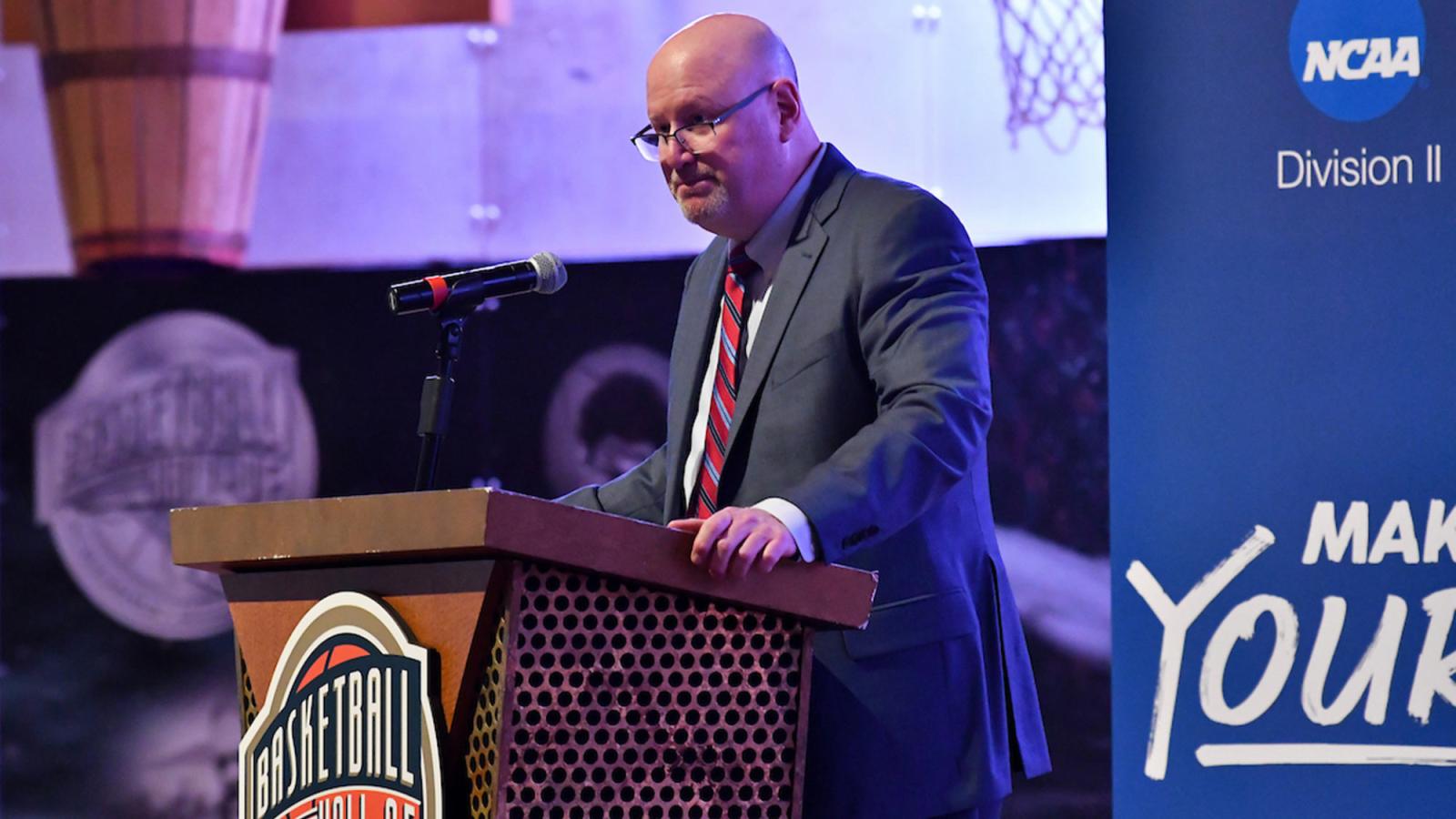
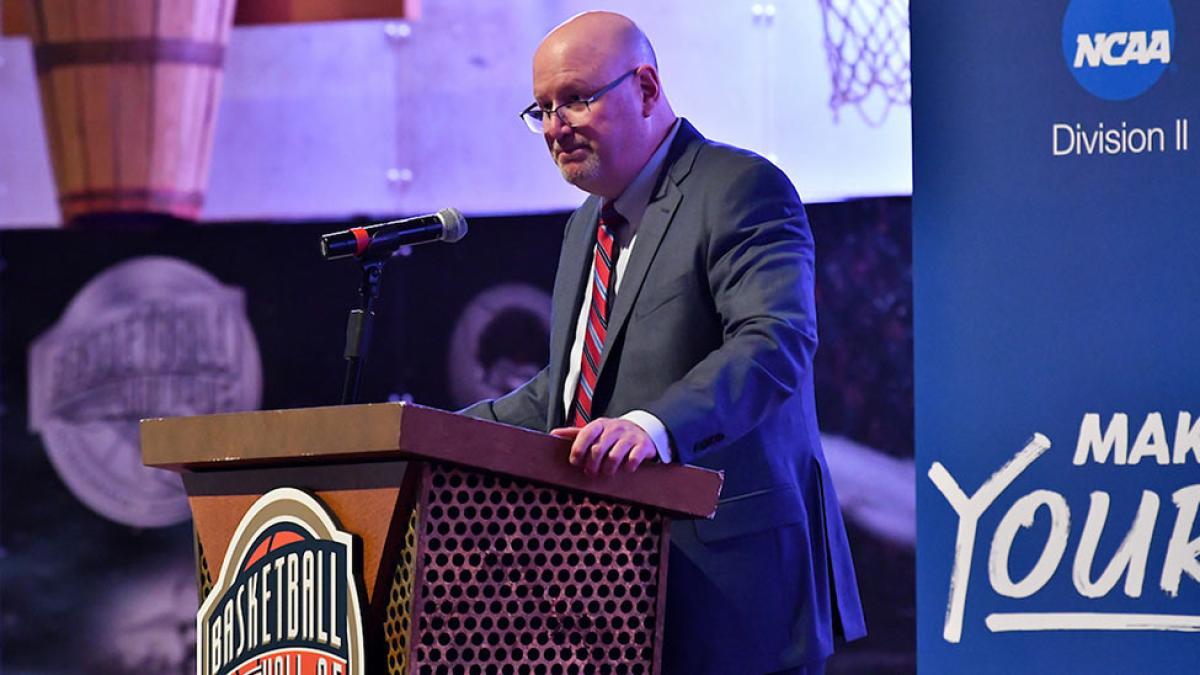
For 14 years, Mark Brown has served as Pace University’s Director of Athletics, the kind of leader whose presence becomes woven into the fabric of a campus. He has been there for championship runs and unforgettable seasons, for the electric moments that lift a stadium to its feet, and the quieter ones that shape a student’s future. Through it all, Mark has kept one belief at the center of his work: that the real victory comes from knowing he’s made a lasting difference in the lives of Pace student-athletes.
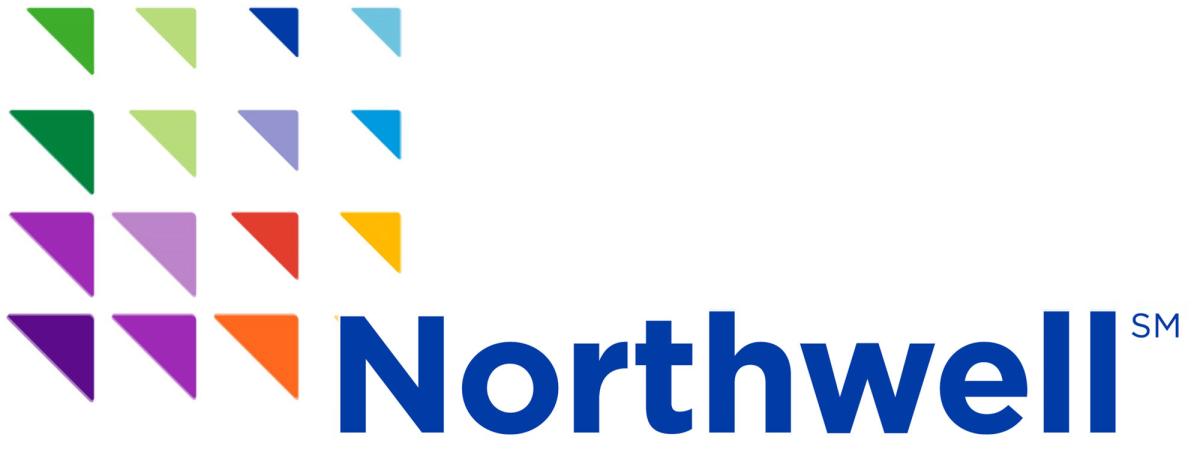
That belief is what led him to take a step that reaches far beyond his own time at the University. Mark recently established the Mark R. Brown Athletics Leadership Fund, a planned gift through his estate that will support student-athletes for generations to come. It is a gesture rooted in gratitude, service, and the deep sense of purpose that has defined his Pace career.
“I am choosing to make this commitment to Pace because Pace made a commitment to me 14 years ago,” he says. “In my role, I know I am making an impact in the lives of students, and I find that immensely satisfying. I could not imagine doing anything else at any other place. Pace has become my family.”
Pace has become my family.
Before he ever set foot on the Pleasantville Campus, Mark had already built an impressive resume, spending 18 years as an associate athletic director at Old Dominion University in Virginia. But when the opportunity to lead Pace Athletics came along, it arrived at a moment when he was searching for something more personal and grounded. He was ready to step away from the scale of Division I and into a Division II environment where he could see the impact of his work up close.
Pace offered exactly that. Its mission of Opportunitas resonated deeply with him, particularly as a first-generation college student who understood just how life-changing an open door can be. The students he met reminded him of himself: ambitious, hardworking, and searching for a place that believed in their potential. The campus, too, felt familiar, calling to mind the rural Vermont town where he grew up.
“Every person I met on campus was so kind and authentic, and I could really tell how much they cared about the students and this community,” Mark recalls. “I felt, and continue to feel, a genuine warmth that is hard to describe.”
Every person I met on campus was so kind and authentic, and I could really tell how much they cared about the students and this community.
Since joining Pace, Mark has guided the department through one milestone after another. Four years ago, he became the longest-tenured athletic director in the Northeast 10 Conference. Under his leadership, the University has seen notable growth in enrollment and academic success, as well as a surge in donor participation and support. He played a central role in developing a multi-million-dollar master plan for athletic facilities, a plan that came to life through projects such as the 14,010-square-foot Joseph R. Ianniello Field House, significant upgrades to Northwell Stadium and Peter X. Finnerty Field, and other enhancements designed to elevate the student-athlete experience.
Perhaps most meaningful to him has been the rise in academic achievement. During the 2024-25 season, Pace Athletics posted a cumulative 3.42 GPA with 78.6 percent of the department earning a spot on the NE10 Academic Honor Roll, the third-highest total in the conference.
So, when Mark decided to take the next step in supporting the students he has dedicated his career to, he chose to make his estate gift through his retirement plan. Working closely with Pace’s philanthropy team, he found an approach that allowed him to honor the University’s mission now while creating a permanent source of support for generations of Setters to come.
Because I feel so fortunate, I feel it is only appropriate to share my good fortune in as many ways as I can.
The process, he notes, is far easier than people often assume. Naming Pace as a beneficiary of a retirement plan or IRA can be done with a simple one-page form, no need to revise a will or trust, and no attorney fees involved. And because retirement assets left to the University are not taxed as income, individuals can make a significant impact without diminishing the value of their gift.
Mark never experienced a Pace education himself, but he has witnessed its power repeatedly over the past 14 years, seeing how it changes students, uplifts families, and strengthens communities. He hopes that his own commitment encourages others to consider the role they might play in supporting tomorrow’s student-athletes.
“I feel incredibly blessed to have found an occupation that I find so meaningful,” he says. “Because I feel so fortunate, I feel it is only appropriate to share my good fortune in as many ways as I can. I'm not a guy who has to live in the largest house or drive the newest car; I get profound satisfaction from being a servant leader and helping other people become successful. I feel incredibly blessed and proud to be able to make this commitment to a place that has become so special to me.”
You can join Mark in extending opportunities to future Pace students through a gift in your estate plan. Contact Marc Potolsky at (212) 346-1619 and mpotolsky@pace.edu to learn more.
More from Pace Magazine
Pace Athletics celebrated five outstanding alumni during the 2025 Hall of Fame Brunch on Homecoming Weekend. From record-breakers to program builders, these Setters left their mark and now take their place in Pace history.
From homes around the world to a new life in Blue and Gold, international student-athletes at Pace face more than competition—they navigate culture, language, and independence.
Pace student-athletes dominated the 2025 fall season with standout performances and postseason honors across five sports. From record-breaking veterans to breakout first-years, these Setters went all in and brought the accolades home.
International Student-Athletes Finding Their Place at Pace University
From homes around the world to a new life in Blue and Gold, international student-athletes at Pace face more than competition—they navigate culture, language, and independence.

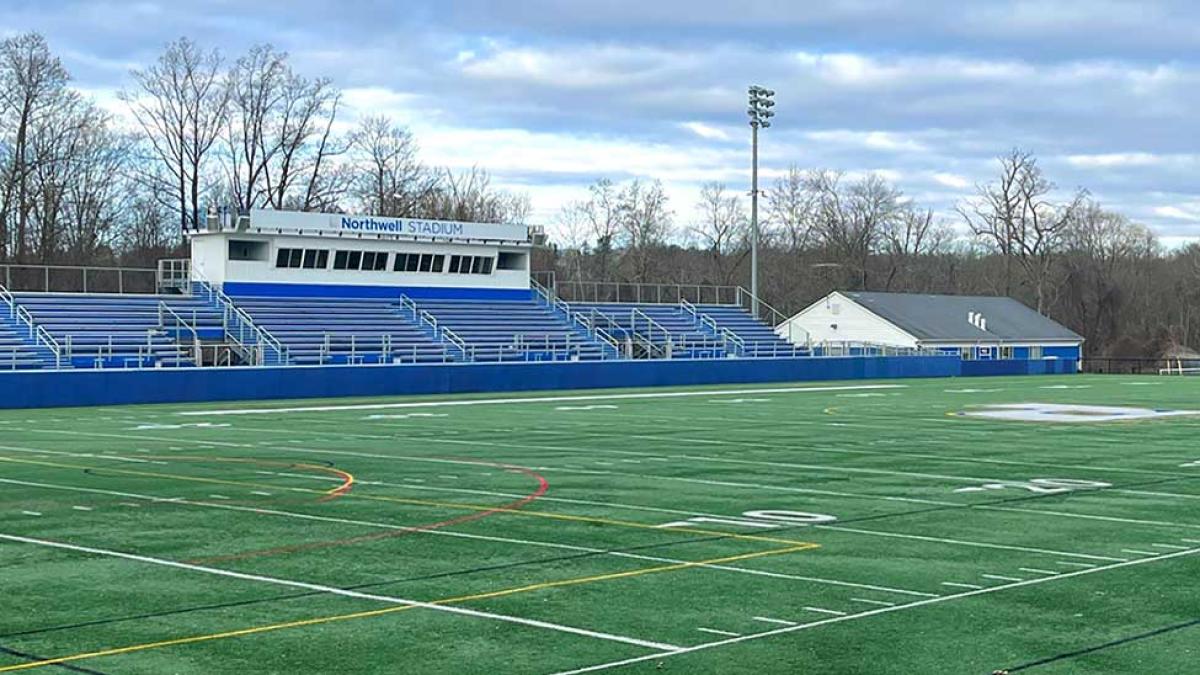
For many international student-athletes, the decision to leave home and compete in the NCAA is as much a leap of faith as it is a pursuit of opportunity. At Pace University, that leap brings students from across the globe into a demanding environment that blends Division II athletics, rigorous academics, and the everyday realities of adapting to life in a new country. While each journey is different, the shared experience of transition, adjustment, and growth has become a defining part of the international student-athlete story within the Blue and Gold.

Each year, Pace welcomes student-athletes who arrive with years of preparation in their sport and a willingness to challenge themselves beyond competition. What many quickly discover is that success is shaped as much by what happens away from the field, pool, or pitch as it is by performance. New academic expectations, cultural differences, language nuances, and distance from home all play a role in shaping the international student-athlete experience.
Among those navigating that transition are Ben Dunkerley, Feline Rook, Javier Cisternas-Gomez, and Eugenia Morossi. While their sports and backgrounds differ, their experiences reveal common themes of resilience and personal growth.
For many international student-athletes, the first weeks on campus are the most challenging. Everything feels unfamiliar, from classroom dynamics to daily routines and communication. Ben Dunkerley, a defender on the men’s soccer team from North Yorkshire, England, described that adjustment as more complex than he expected. “You come here thinking the hardest part will be the soccer,” he said. “But it’s really everything around it that takes time—how classes work, how people communicate, even small things like daily routines.”
"Living far from home has changed me a lot as a person. I’ve become more independent, more mature, and more confident in my decisions." —Rook
The distance from home was one of the biggest challenges Dunkerley faced early on. “At 18, the hardest part was moving away from your parents,” he explained. “It’s a good seven-hour flight to get back home, and then you’re dealing with the time difference. When I’m free in the evening, it’s midnight back home, so communication becomes really difficult.” Learning to manage that separation while living independently forced him to mature quickly. “Cooking for yourself, doing laundry, staying on top of soccer and school—it speeds up that maturity process,” he said.
Dunkerley arrived at Pace with a strong soccer foundation developed through England’s club system and years of competing at a high level. Even with that experience, adapting to the American collegiate model required adjustment. “College sports aren’t really a thing back home in the same way,” he said. “Here, every game means so much because the season is shorter. You’re playing twice a week, training almost every day, and you really have to look after your body.” Over time, structure and support helped him find stability. “Once you settle in, you realize you’re not doing it alone,” he said. “That’s when it really starts to feel like home.”
“You come here thinking the hardest part will be the soccer. But it’s really everything around it that takes time—how classes work, how people communicate, even small things like daily routines.”—Dunkerley
That sense of support and belonging is echoed across Pace Athletics, particularly among first-year international students like Feline Rook. A midfielder on the field hockey team from the Netherlands, Rook came to Pleasantville seeking an opportunity that was difficult to find at home. “I came to Pace because here I have the opportunity to focus on both my academics and playing field hockey at the same time,” she said. “In my country, it’s really hard to combine those two.”
The move was exciting, but far from easy. “My biggest challenge here is living far away from my friends and family,” Rook said. “You can’t just go home for a weekend, and the time difference makes staying in touch more challenging.” Even though she spoke English before arriving, adjusting to a new academic environment in a second language took time. “At first, studying in a different language and a different country was hard and challenging for me,” she said. “But now I’ve gotten used to it, and I feel like I’ve grown academically since I’ve come here.”
Rook credits her teammates and coaches for helping her find confidence both on and off the field. “The atmosphere here was great right away,” she said. “The people I’ve met and the support I’ve had really changed me as a person and as a player.” Her success in her first season—earning Rookie of the Week honors and All-Conference recognition—reinforced that growth. “Those achievements reflect all of the hard work I’ve put into adjusting to a new country, a new team, and a new level of competition,” she said.
“The people I’ve met and the support I’ve had really changed me as a person and as a player.”—Rook
Academics present another layer of transition for international student-athletes, especially when paired with the physical demands of Division II competition. For Javier Cisternas-Gomez, a freshman swimmer from Santiago, Chile, learning to balance those responsibilities was essential. “Everything moves fast here,” he said. “You have practices early in the morning, classes during the day, and studying at night. You learn quickly how important time management is.”
Leaving home was the most difficult part of his transition. “The biggest challenge was leaving my family, my dogs, my friends and changing to a completely different language and culture,” he said. “Feeling far from home is the hardest part.” Despite that distance, he found comfort within the team environment. “Here, the vibe feels more like a family,” he said. “That helps a lot.”
Over time, Cisternas-Gomez began to feel more settled. “Right now, I feel like I’ve found an equilibrium,” he said. “I feel like I have a route to accomplish my goals, and that makes me feel confident. You just have to keep going and stay focused.” He encourages future international student-athletes to embrace the challenge. “I know it’s scary, but it’s worth it,” he said. “If you come with a purpose and clear goals, you’re going to be fine.”
"I feel like I have a route to accomplish my goals, and that makes me feel confident."—Cisternas-Gomez
For Eugenia (Gigi) Morossi, a sophomore swimmer from Milan, Italy, the decision to come to the United States was driven by the opportunity to combine elite athletics with higher education. “In Italy, you usually have to choose—you either choose sport or you choose school,” she said. “Here, I can do both, and that’s why I wanted to come.”
Even with that motivation, the transition was overwhelming at first. “I thought I was independent before coming here,” Morossi said. “But then I moved here, and it was kind of shocking. At the beginning, you think, ‘What do I do? Why am I here?’” She described the experience as isolating despite being surrounded by teammates. “You’re not alone, but you feel like you have to deal with everything by yourself.”
That feeling gradually shifted as she became more comfortable within the program. “After some time, it’s like a whole new chapter of your life opens,” she said. “Now I feel completely different from my first year. Even my personality changed.” Morossi also noted one of the biggest differences between European and American sports culture. “In Europe, you’re always competing for yourself,” she said. “Here, I really learned what it means to be part of a team. Even if I don’t love my time in a race, if I score points for the team, I find a reason to be happy.”
"Here, I really learned what it means to be part of a team."—Morossi
As the months pass, many international student-athletes experience a noticeable shift. What once felt unfamiliar begins to feel routine. Classrooms become more comfortable, friendships deepen, and campus life starts to feel like home. “There’s a point where you stop counting the days and just start living,” Cisternas-Gomez said. “That’s when you really feel like you belong.”
That sense of belonging often leads to growth beyond athletics. Living independently in a new country fosters maturity, confidence, and perspective. “Living far from home has changed me a lot as a person,” Rook said. “I’ve become more independent, more mature, and more confident in my decisions.” Dunkerley echoed that sentiment, adding, “It’s made me stronger as a person, not just as an athlete.”
"It's like a whole new chapter of your life opens."—Morossi
International student-athletes bring more than athletic ability to Pace University. They bring new perspectives shaped by where they come from and what they have experienced. Those differences show up in locker rooms, classrooms, and everyday conversations, helping teammates and peers learn from one another and build connections.
For Pace Athletics, supporting international student-athletes goes beyond competition. It means helping them adjust to life in a new place, grow more confident, and learn how to stand on their own so far from home. As these Setters continue to build their lives thousands of miles from where they began, their stories reflect what it means to be an international student athlete. In representing Pace University, they are also building experiences and perspectives that will stay with them long after their time in the Blue and Gold.
More from Pace Magazine
Pace Athletics celebrated five outstanding alumni during the 2025 Hall of Fame Brunch on Homecoming Weekend. From record-breakers to program builders, these Setters left their mark and now take their place in Pace history.
Pace student-athletes dominated the 2025 fall season with standout performances and postseason honors across five sports. From record-breaking veterans to breakout first-years, these Setters went all in and brought the accolades home.
For 14 years, Mark Brown has led Pace Athletics with heart, purpose, and a deep commitment to student success. Now, through a planned gift, he’s ensuring that support continues for generations of Setters to come.
Pace Athletics Honors 2025 Hall of Fame Class at Annual Induction Brunch on Homecoming Weekend
Pace Athletics celebrated five outstanding alumni during the 2025 Hall of Fame Brunch on Homecoming Weekend. From record-breakers to program builders, these Setters left their mark and now take their place in Pace history.


Pace University proudly welcomed five new members into the Athletics Hall of Fame during the 2025 Hall of Fame Brunch and Awards Ceremony presented by Northwell Health. The annual event, a highlight of the University’s Homecoming Weekend, brought together alumni, families, coaches, current student-athletes, and longtime supporters to recognize individuals whose achievements and contributions have left a lasting imprint on Setter Athletics.

Homecoming Weekend featured a full slate of athletic competition, including women’s soccer, football, men’s soccer, and volleyball, but the Hall of Fame Brunch served as the weekend’s signature moment. From the opening remarks through the closing group photo, the ceremony emphasized the history and tradition of Pace Athletics.
Director of Athletics Mark Brown began the program by welcoming the audience and speaking to the significance of the Hall of Fame. He noted the impact each inductee has had on their program and the role they played in elevating Pace Athletics as a whole. His remarks set the tone for a celebration focused not only on athletic accomplishments but also on character, leadership, and the enduring influence of former student-athletes.
The 2025 Hall of Fame Class encompassed a wide range of programs and competitive eras, showcasing the depth of excellence within Pace Athletics.
Serving as emcee, longtime Pace athletics supporter Tim McCaffery guided the ceremony and introduced the members of the 2025 Hall of Fame Class. Each honoree was featured in a personalized tribute video highlighting memorable moments from their time as student-athletes before taking the stage to address the audience.
The 2025 Hall of Fame Class encompassed a wide range of programs and competitive eras, showcasing the depth of excellence within Pace Athletics.
Jhalen Bien-Aime '19, football, was recognized for his transformative impact on the football program. A two-time All-NE10 selection, Bien-Aime graduated as the program’s all-time leader in rushing touchdowns and was instrumental in revitalizing Pace Football during his career.
Liam Brennan ’18, men’s lacrosse, joined the Hall of Fame as one of the most productive offensive players in men’s lacrosse history. Brennan earned multiple All-NE10 and All-America honors and played a central role in elevating the program to national relevance.
While Homecoming Weekend featured competitive excitement across campus, the 2025 Hall of Fame Brunch offered a meaningful opportunity to honor the individuals whose achievements have helped build Pace Athletics.
Jocelyne Greco ’07, women’s soccer, known for her leadership along the back line, was honored for her defensive consistency during one of the strongest eras in women’s soccer. Her contributions helped set a foundation for the program’s long-term success.
Annabel Keppel-Palmer ’22, women’s swimming and diving, became one of the most decorated swimmers in program history during her career at Pace. Her record-setting performances and multiple NE10 medals helped redefine the competitive standard of the swimming program.
Peyton Wejnert '20, men's basketball, was inducted after a standout career in which he surpassed 1,700 career points and earned multiple All-Region honors. His scoring ability and leadership contributed significantly to the resurgence of the men’s basketball program.
Before the introduction of the new class, the University recognized an additional milestone achievement. Dr. Marcus Mayus, a 2000 graduate and 2012 Pace Athletics Hall of Fame inductee, was honored for his recent enshrinement into the Northeast 10 Conference Hall of Fame. Mayus’ collegiate career remains one of the most celebrated in Setter history, highlighted by honors including NE10 Player of the Year, ECAC Player of the Year, and USILA Midfielder of the Year, as well as conference regular season and tournament championships.
The moment served as a visual reminder of the tradition of excellence that continues to shape the University’s athletic programs.
Following a mid-morning brunch intermission, the program continued with the presentation of the Peter X. Finnerty Leadership Award, named for Pace’s founding Director of Athletics. The 2025 recipients, Jerry McAuliffe and Brenda MacAdam McAuliffe, were honored for their extensive contributions to the University, including scholarship support, alumni leadership, and mentorship. Their establishment of the Brenda and Jerry McAuliffe Endowed Scholarship, which benefits accounting students who are also student-athletes, reflects their ongoing dedication to fostering academic and athletic excellence at Pace.
As the formal recognitions concluded, the ceremony closed with final remarks from McCaffery and a group photograph of past and present Hall of Fame members. The moment served as a visual reminder of the tradition of excellence that continues to shape the University’s athletic programs.
While Homecoming Weekend featured competitive excitement across campus, the 2025 Hall of Fame Brunch offered a meaningful opportunity to honor the individuals whose achievements have helped build Pace Athletics. Their contributions now stand as part of the University’s history, shaping a tradition that continues to grow with each new generation of Setters.
More from Pace Magazine
Pace student-athletes dominated the 2025 fall season with standout performances and postseason honors across five sports. From record-breaking veterans to breakout first-years, these Setters went all in and brought the accolades home.
For 14 years, Mark Brown has led Pace Athletics with heart, purpose, and a deep commitment to student success. Now, through a planned gift, he’s ensuring that support continues for generations of Setters to come.
From homes around the world to a new life in Blue and Gold, international student-athletes at Pace face more than competition—they navigate culture, language, and independence.


